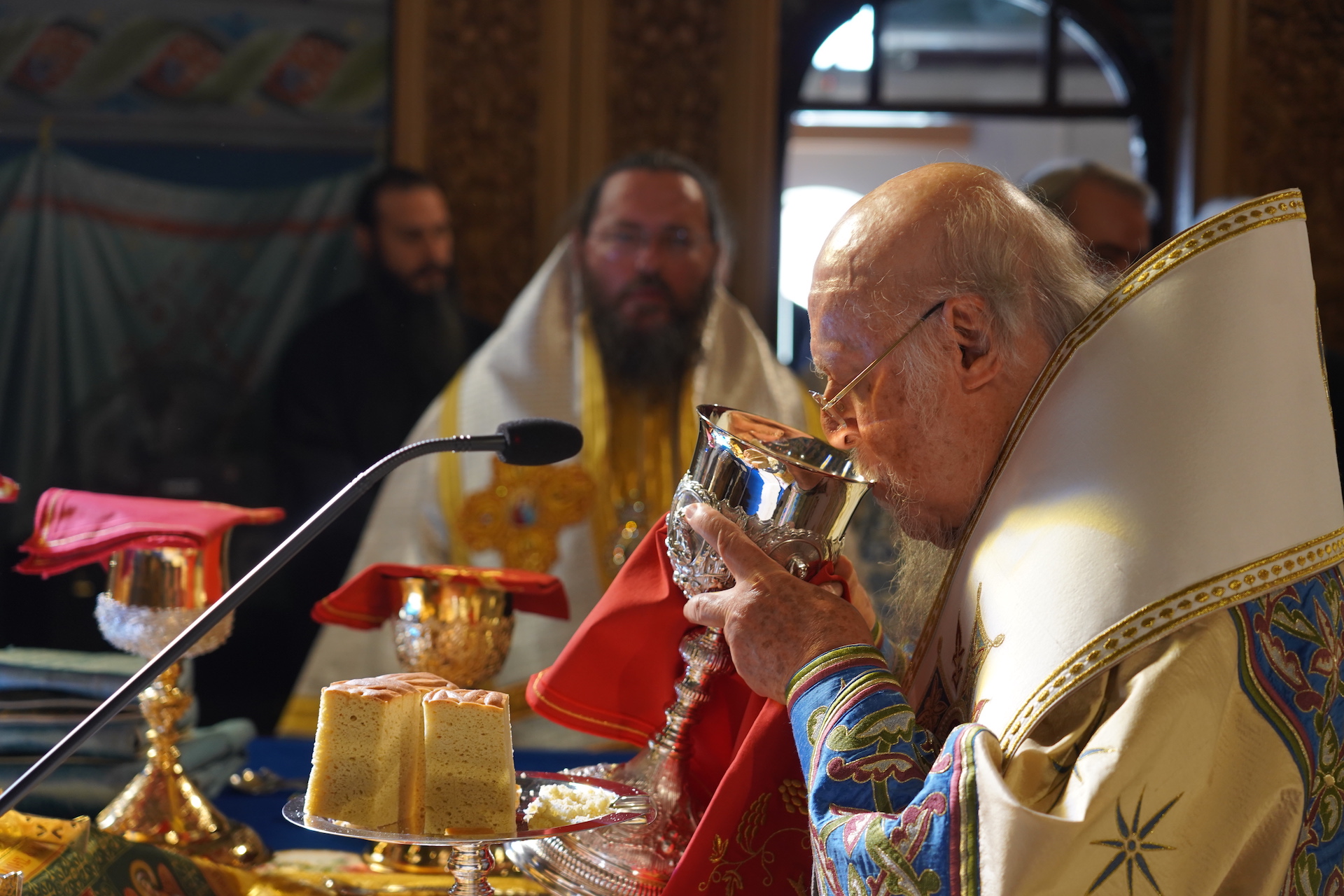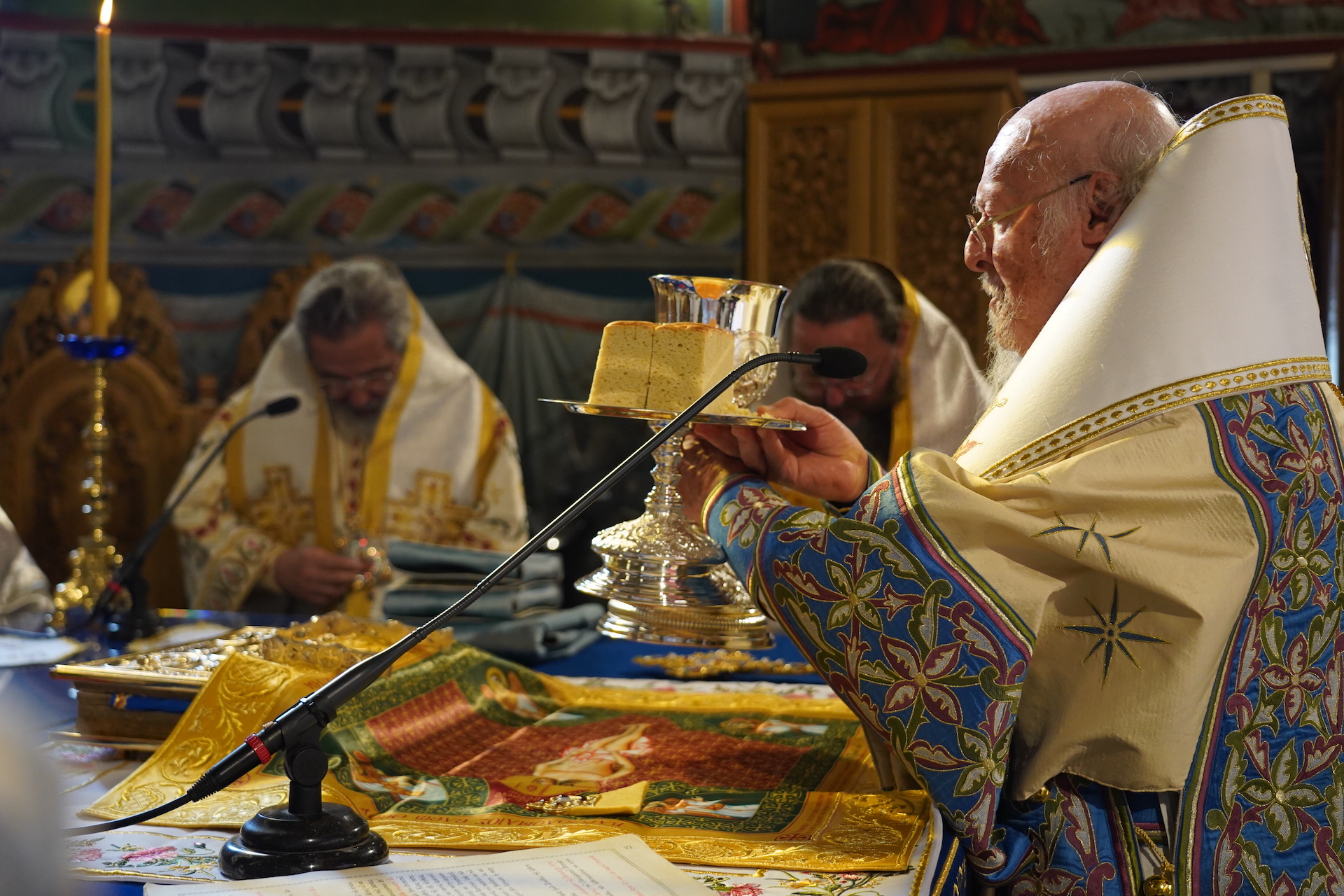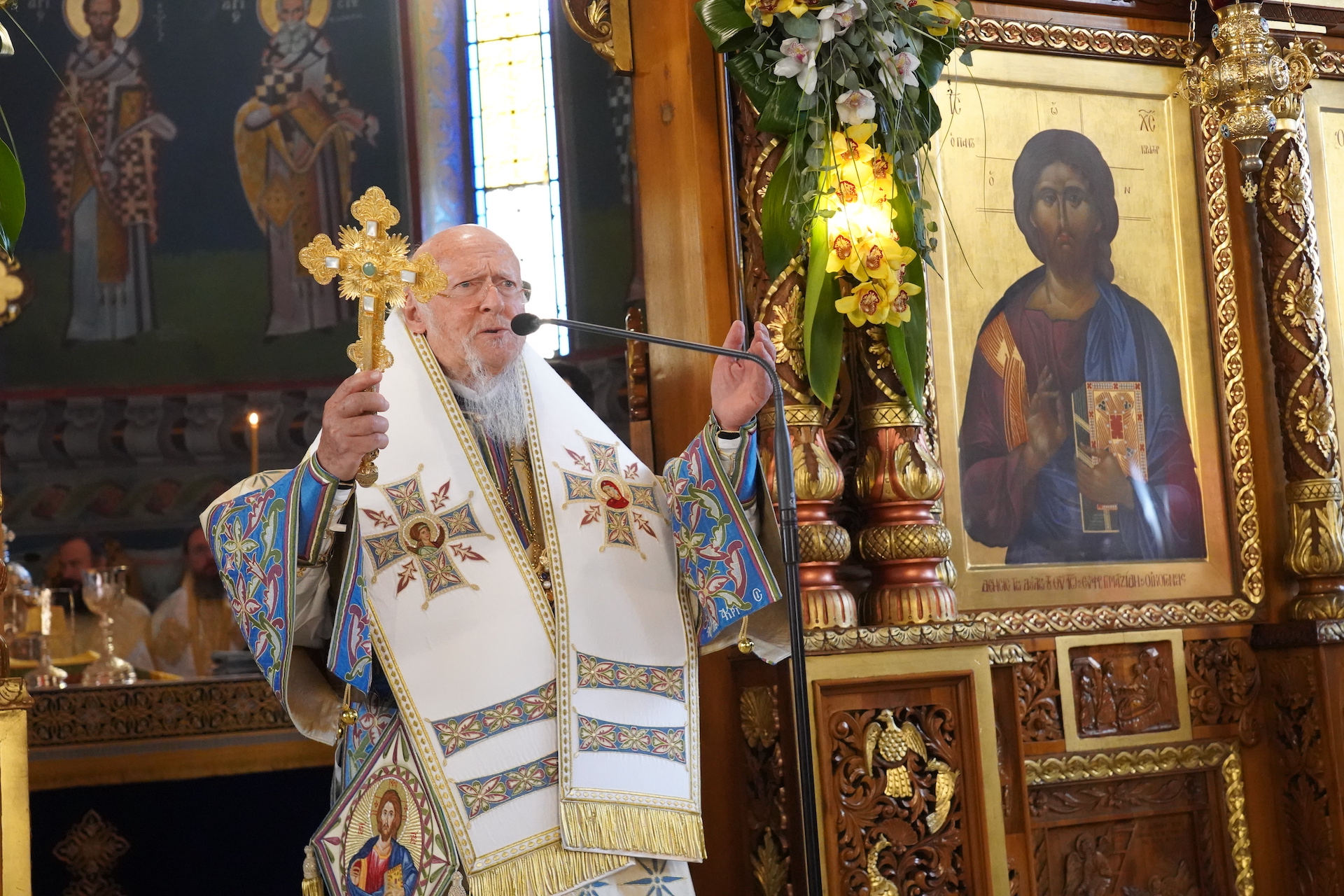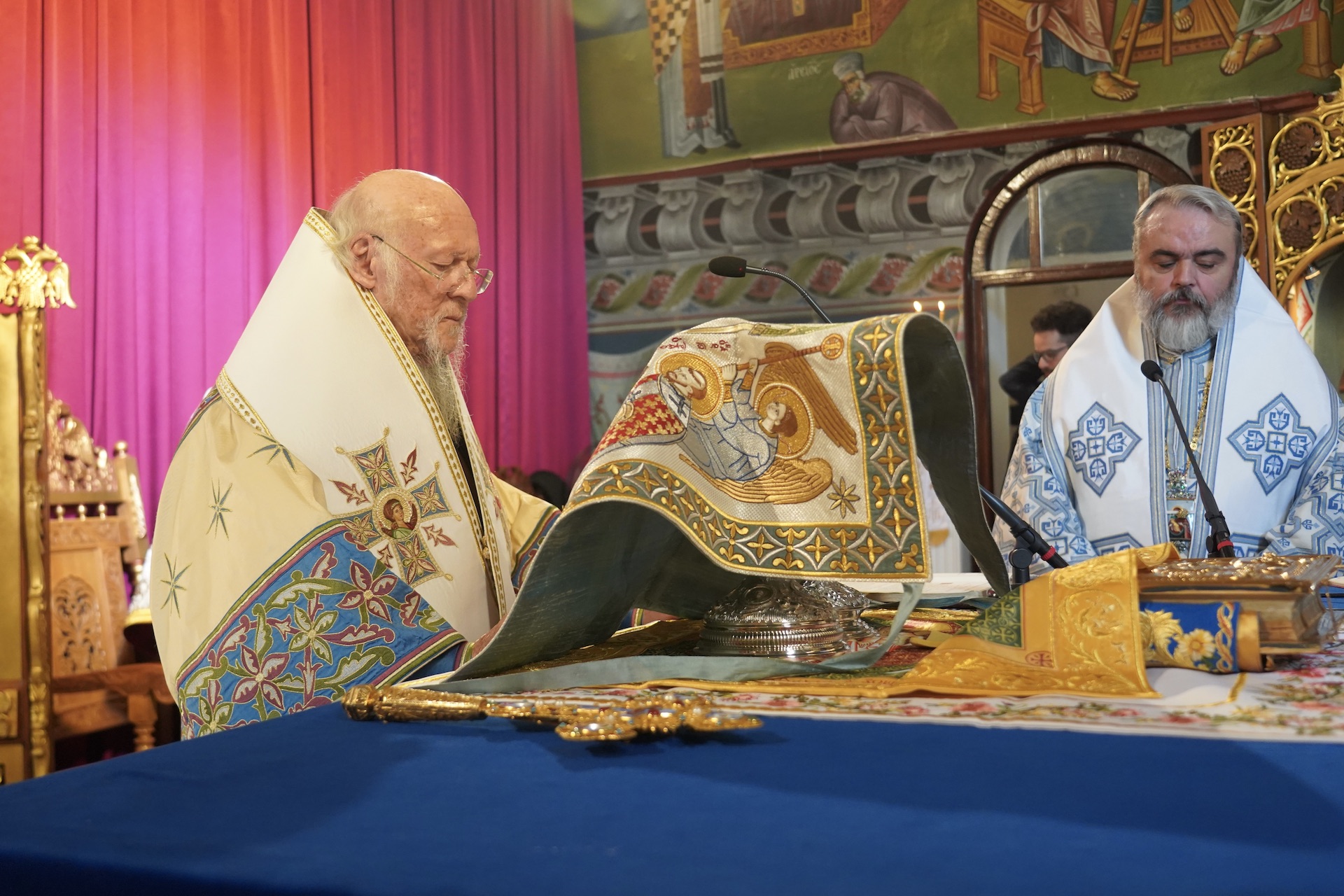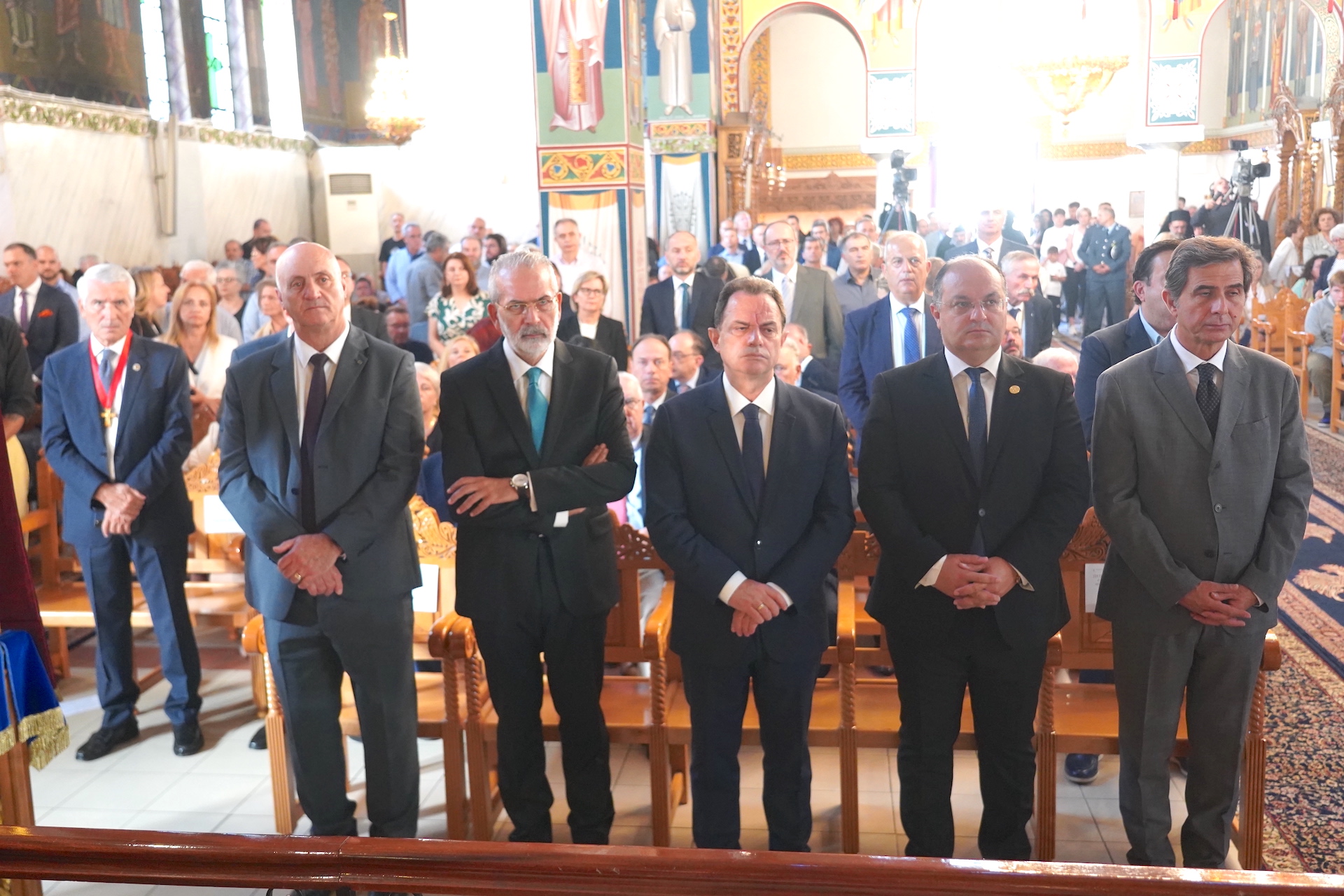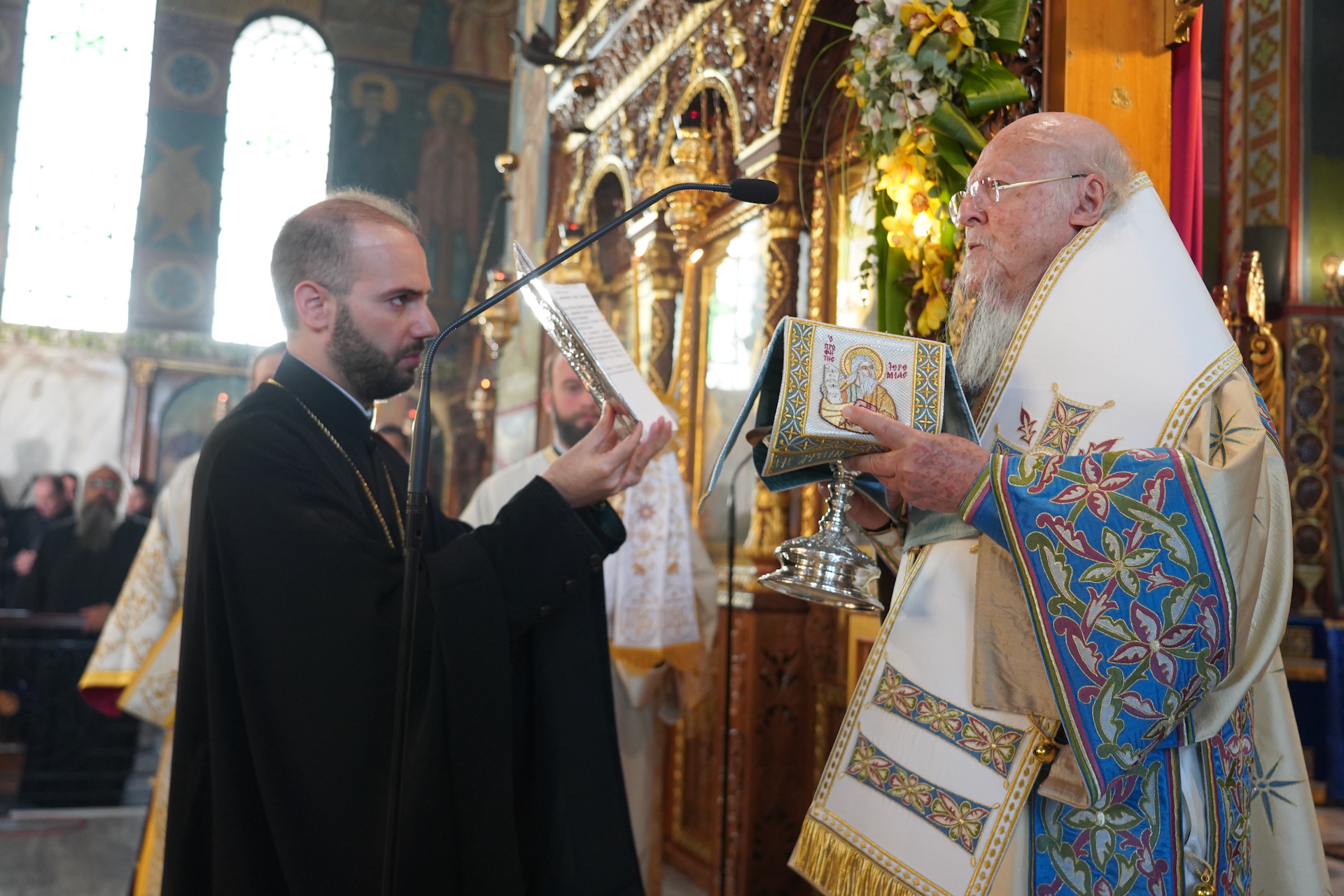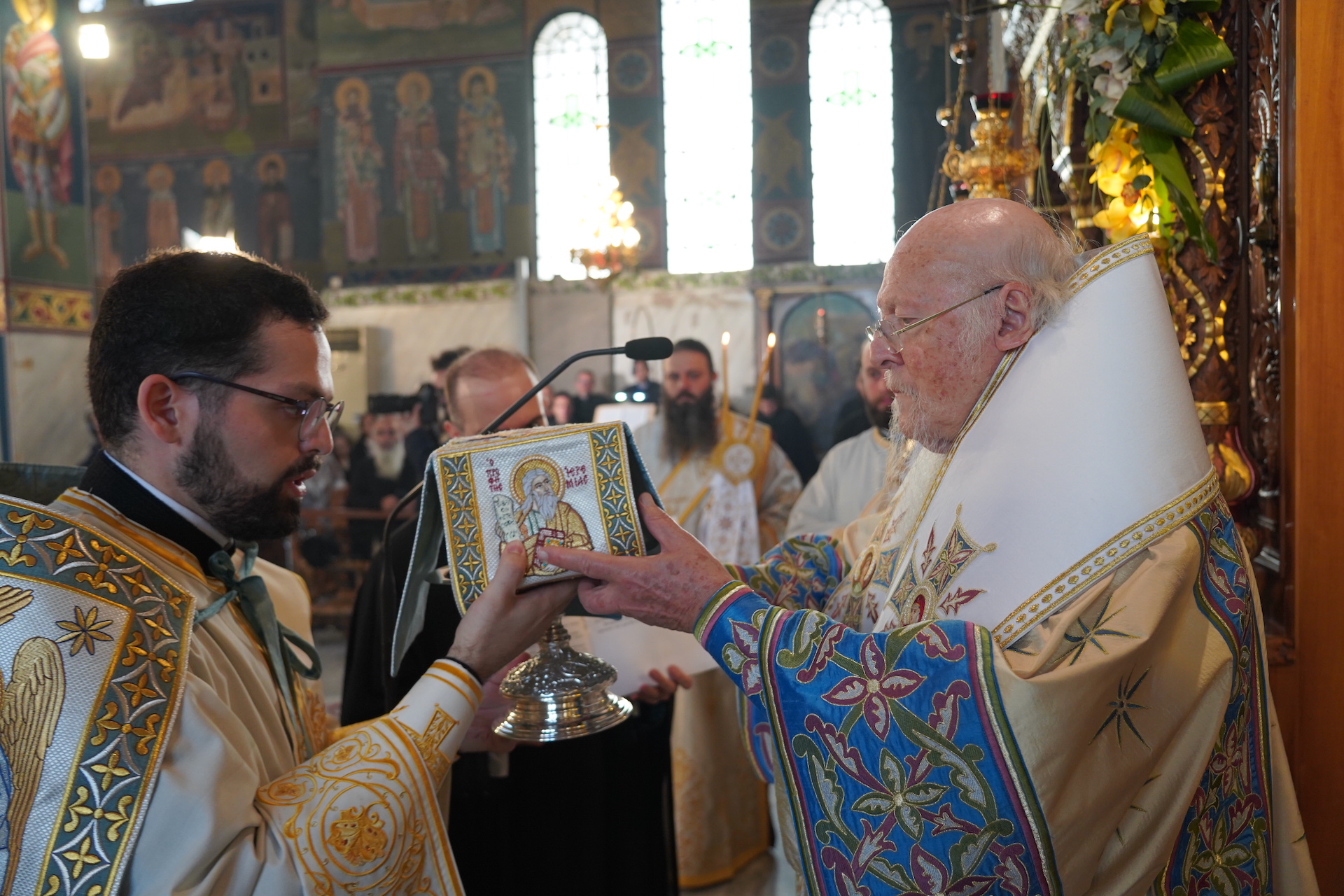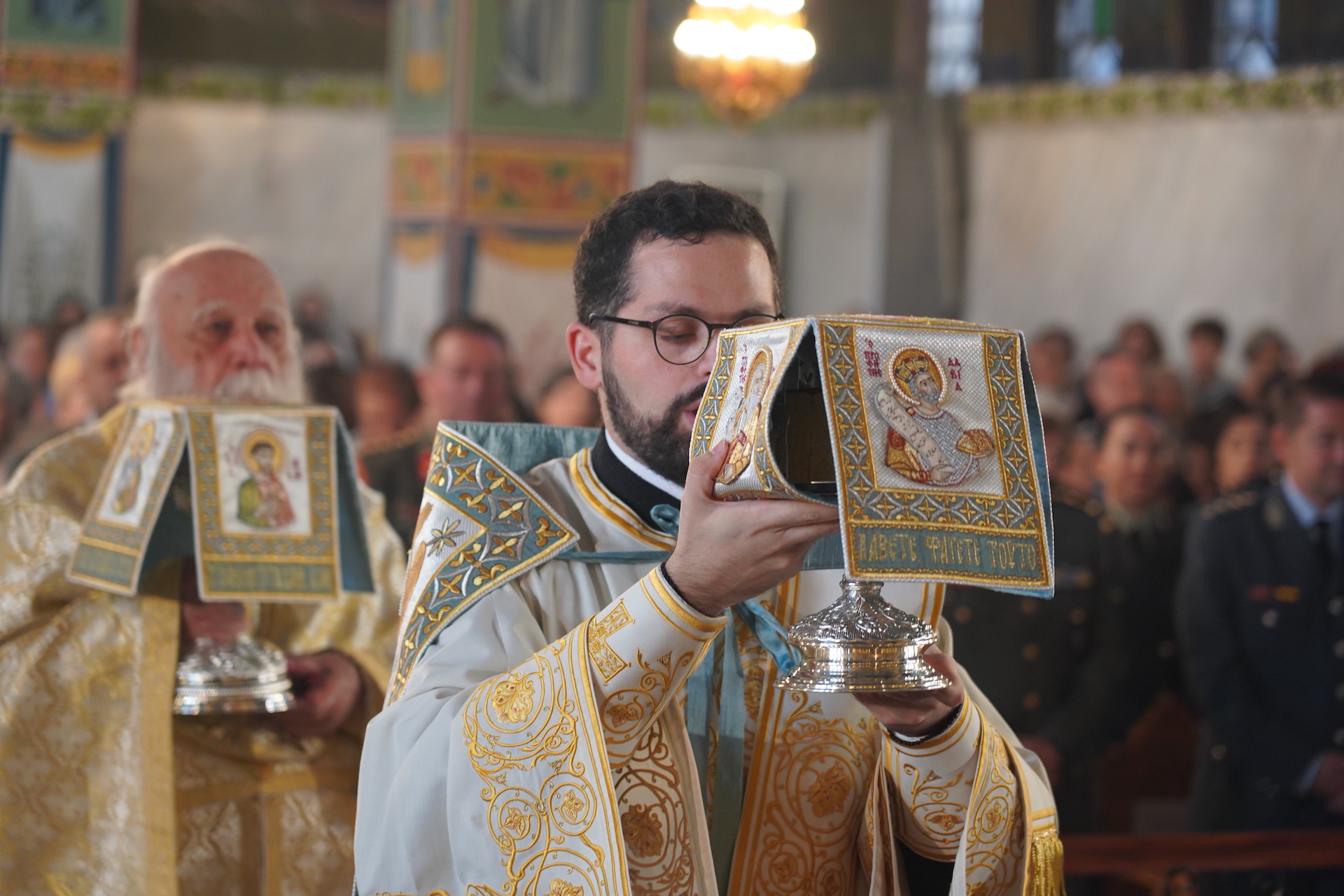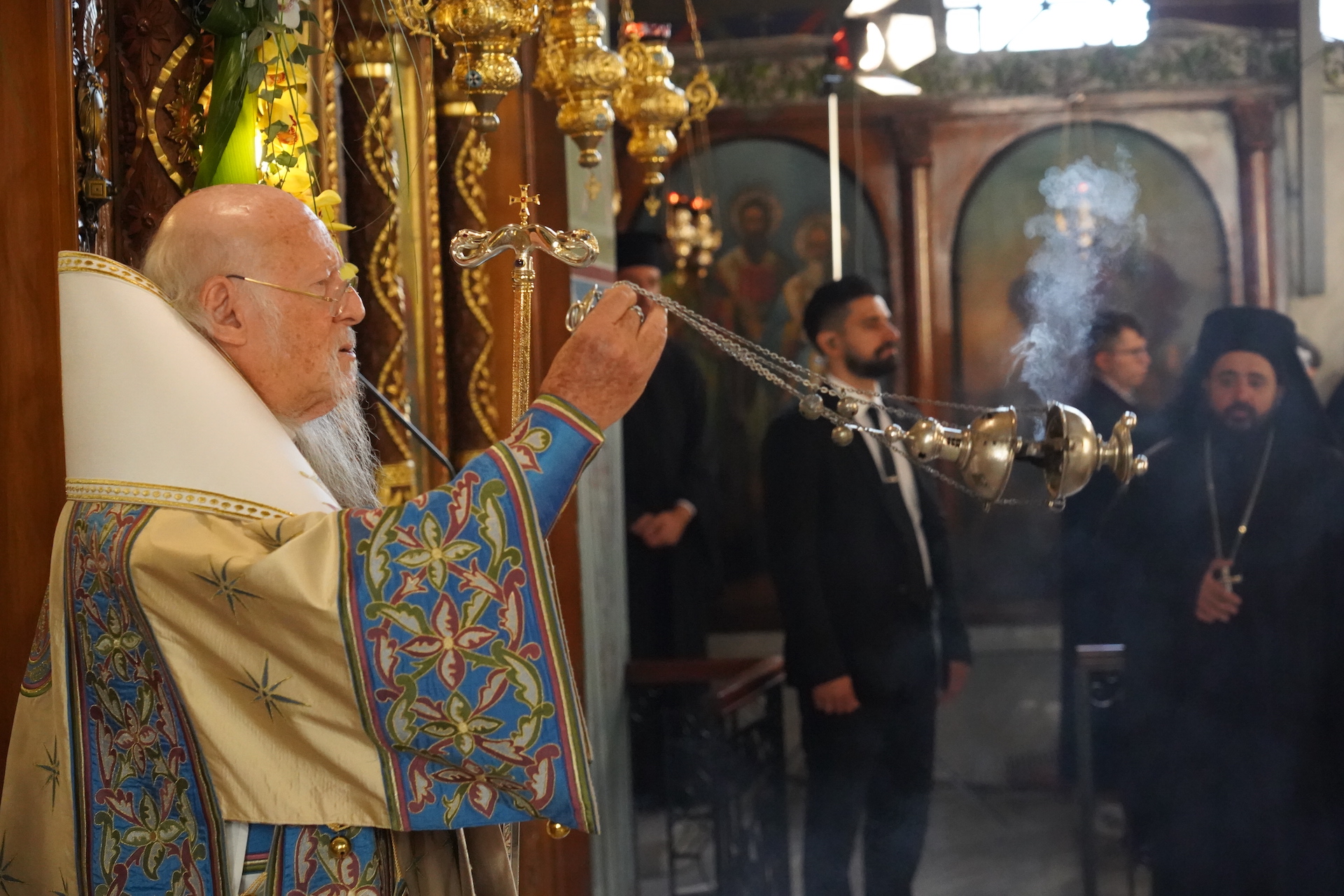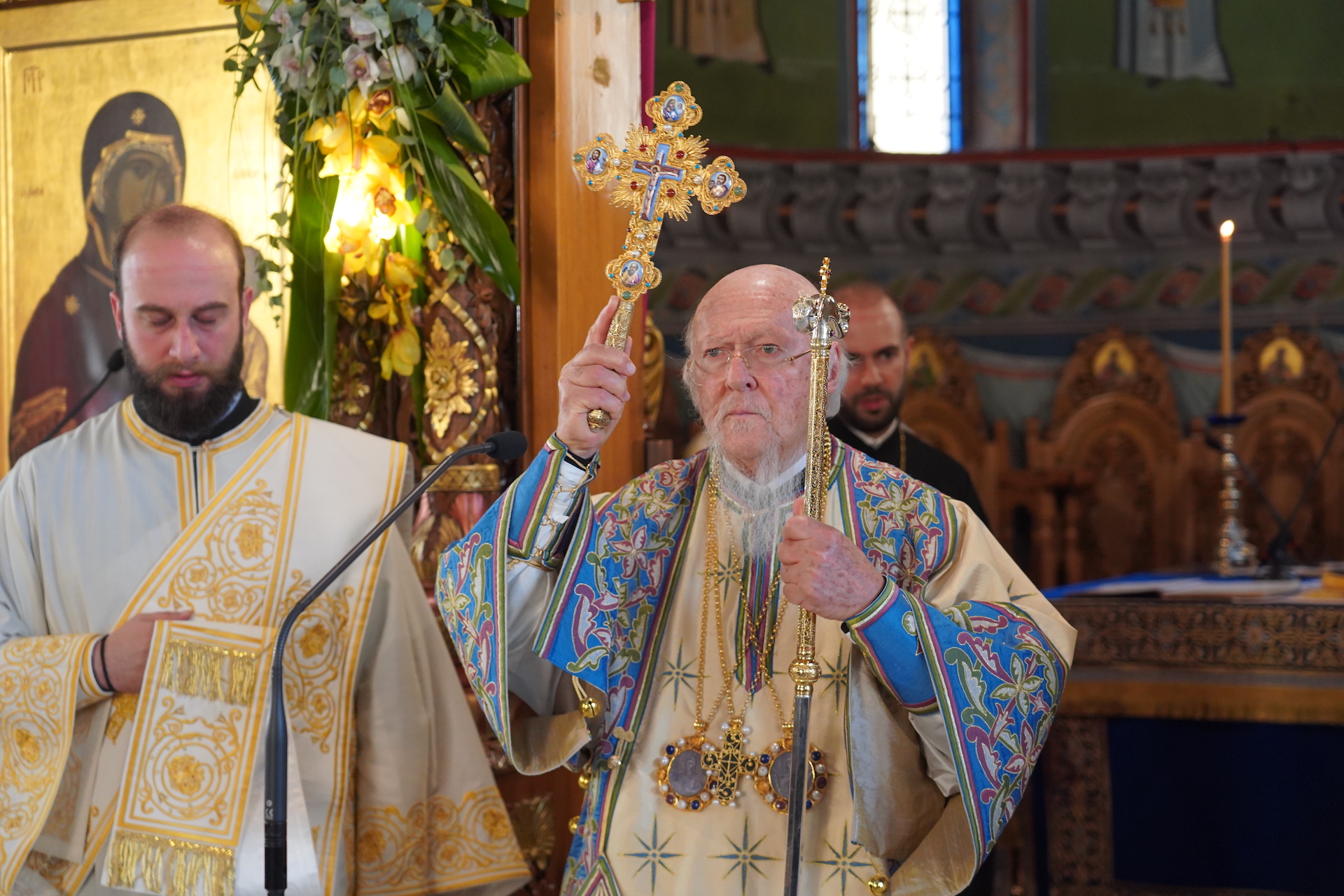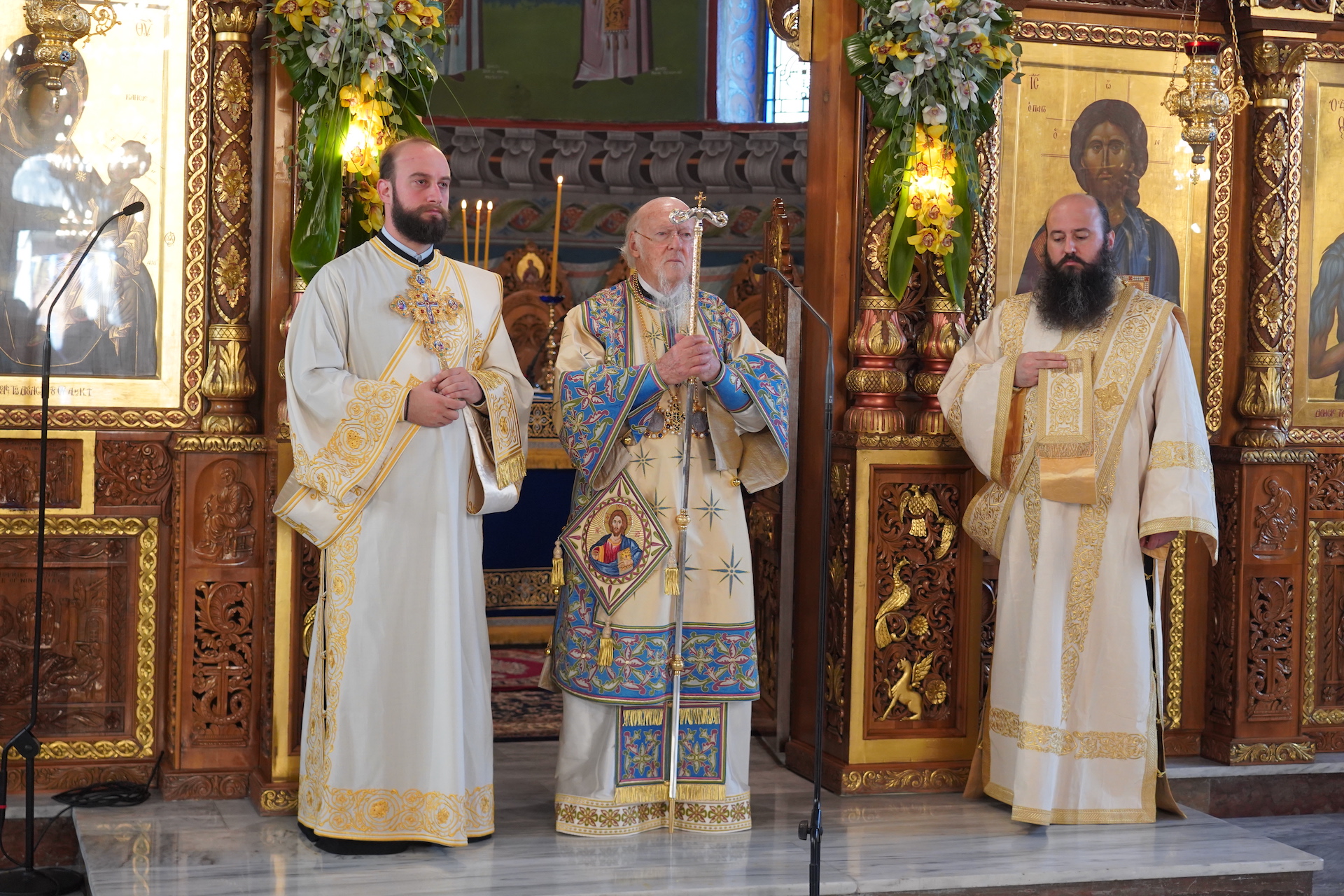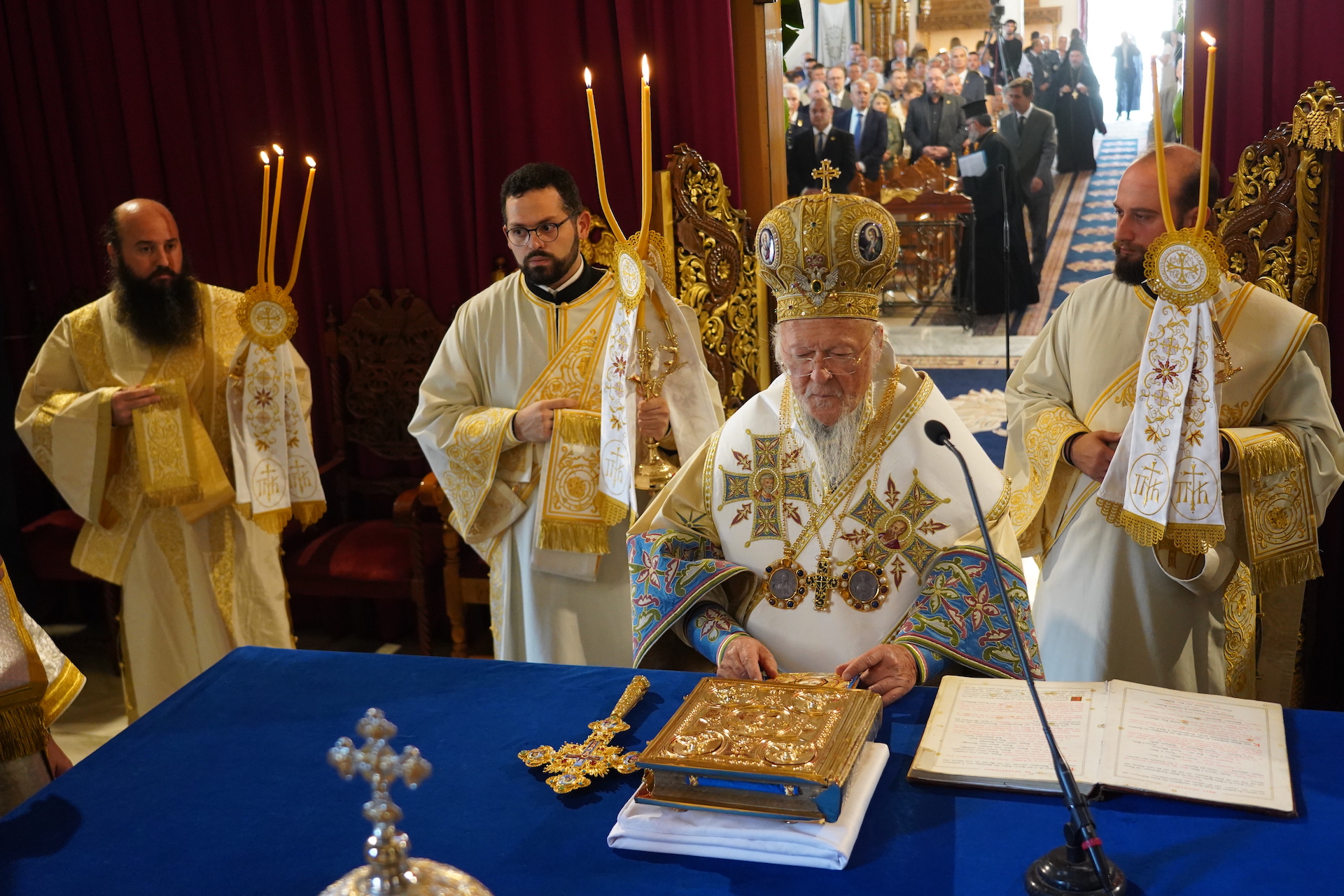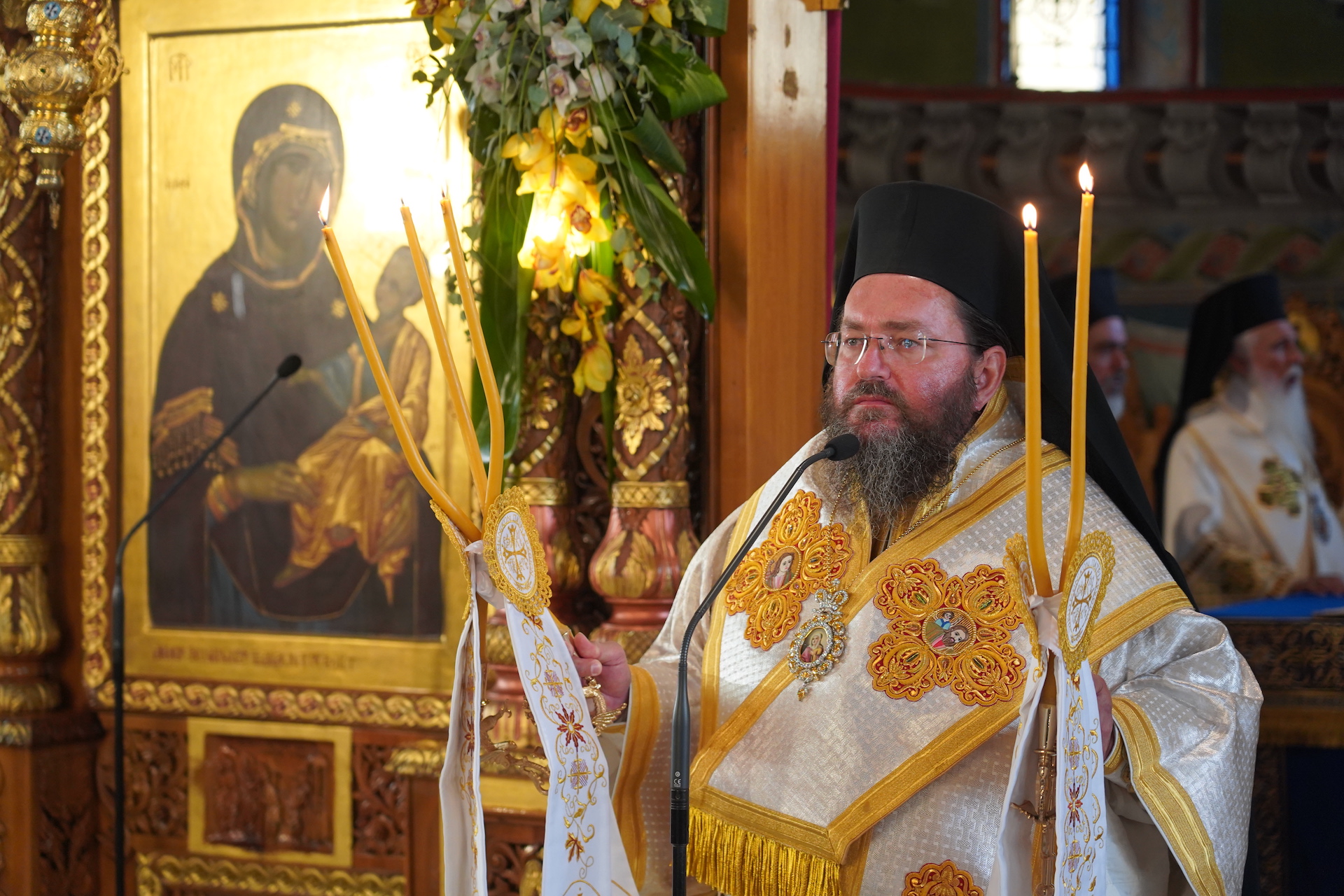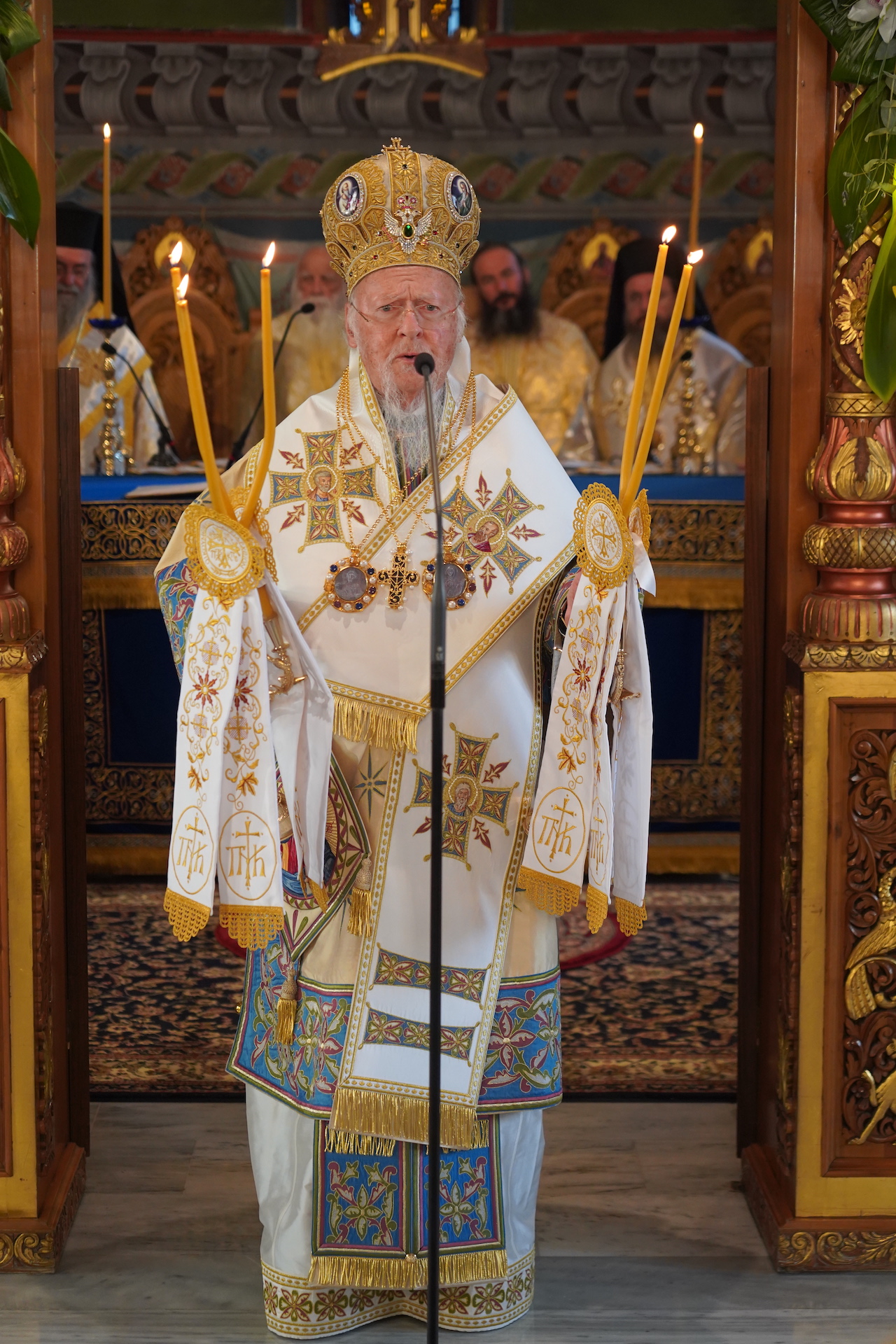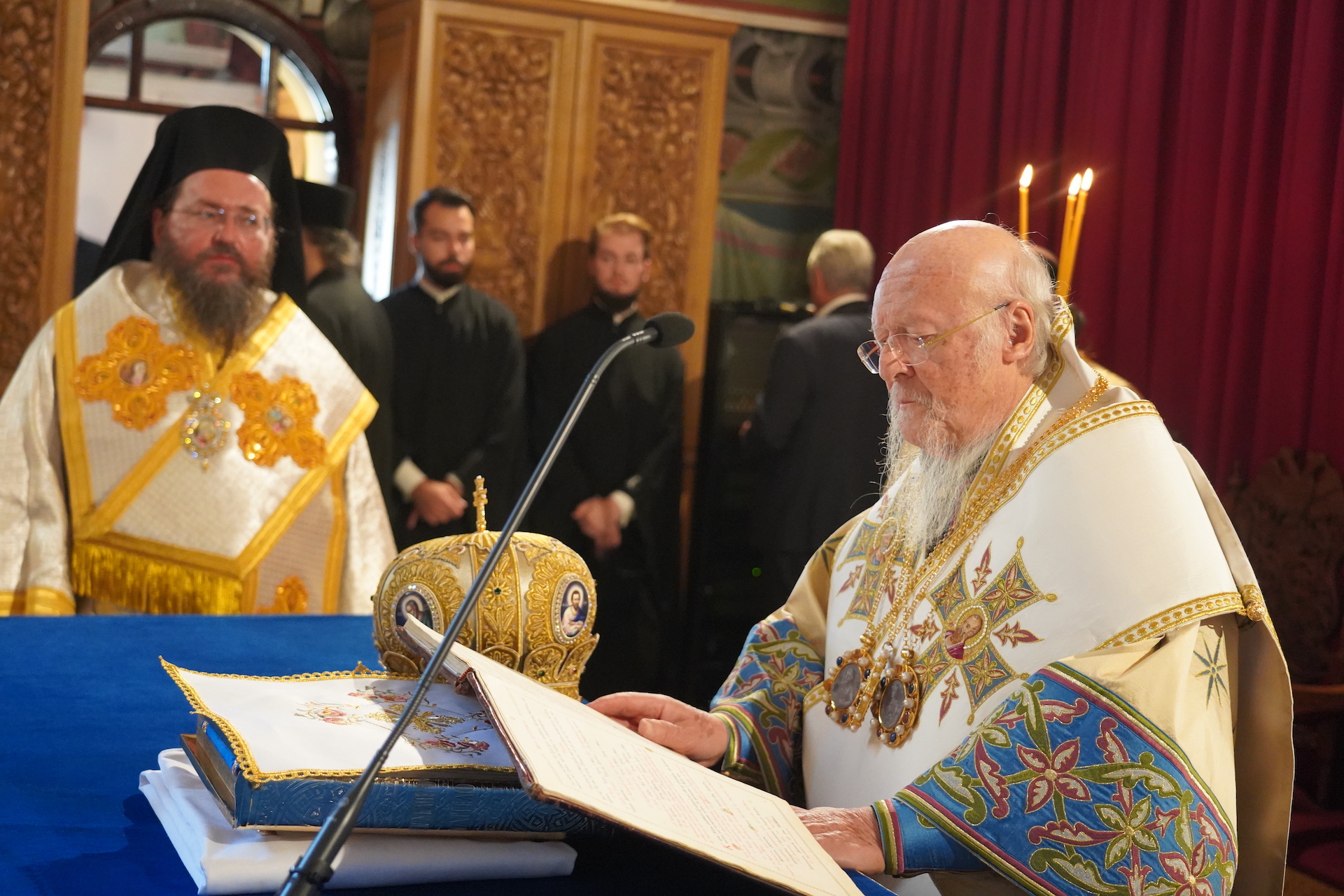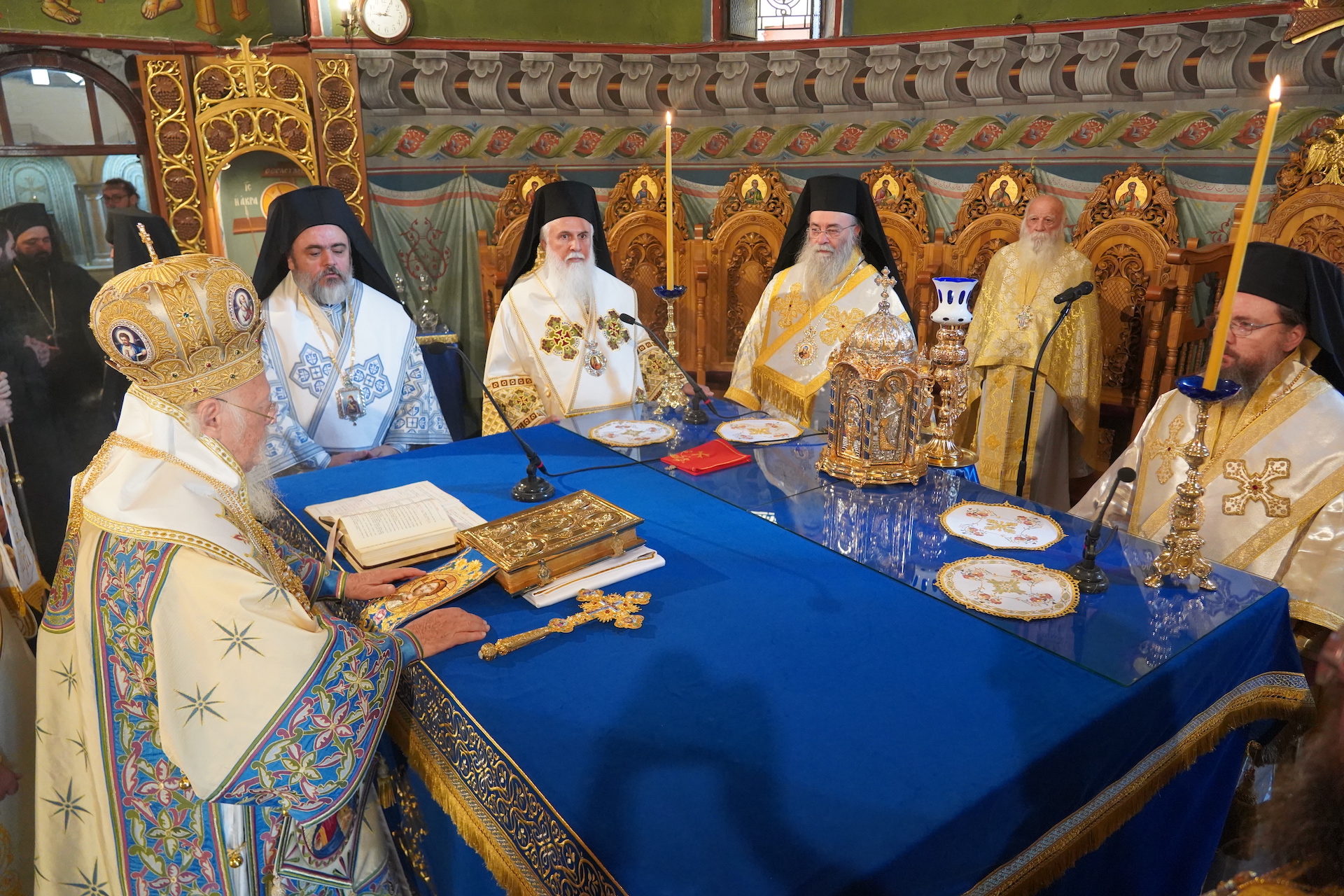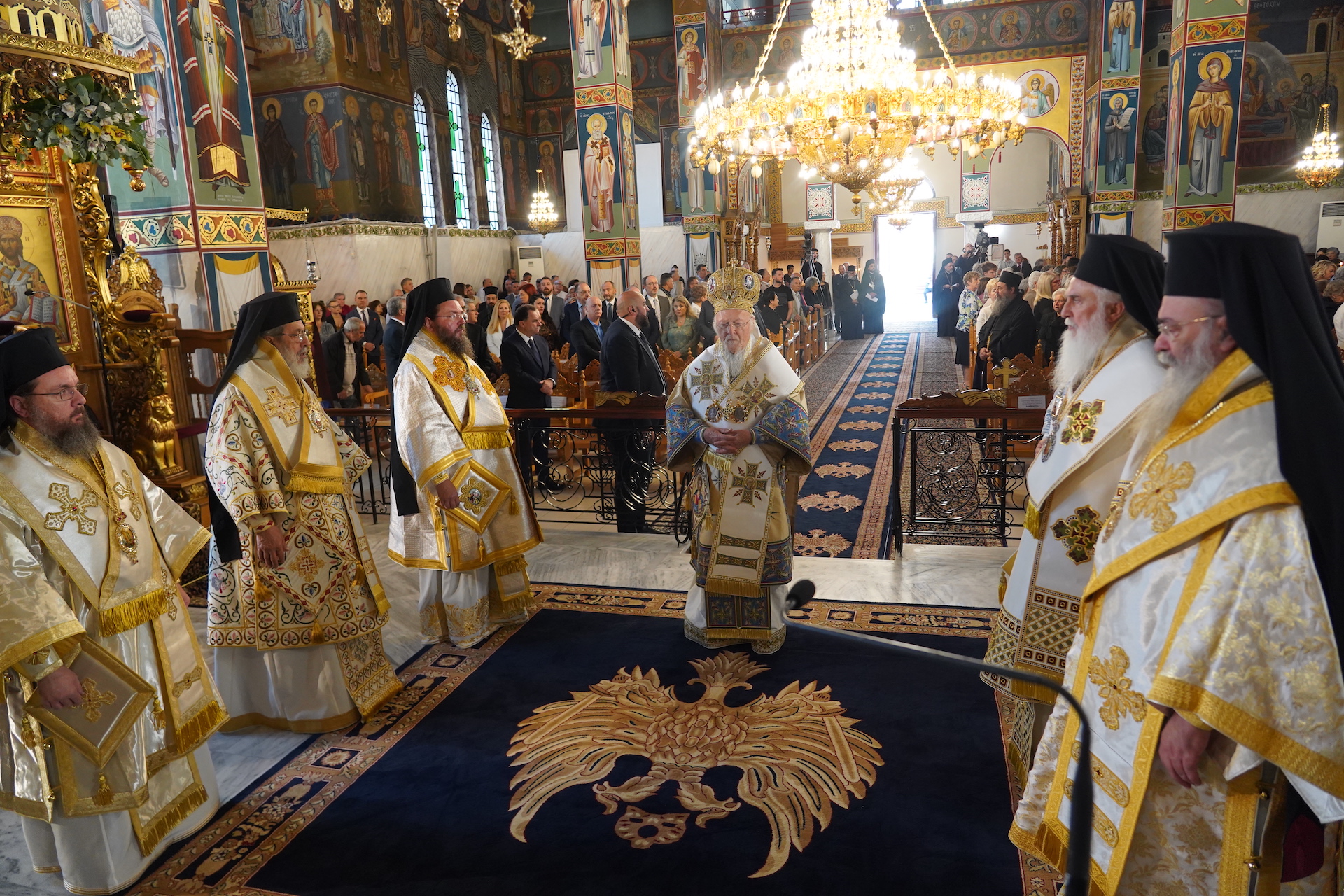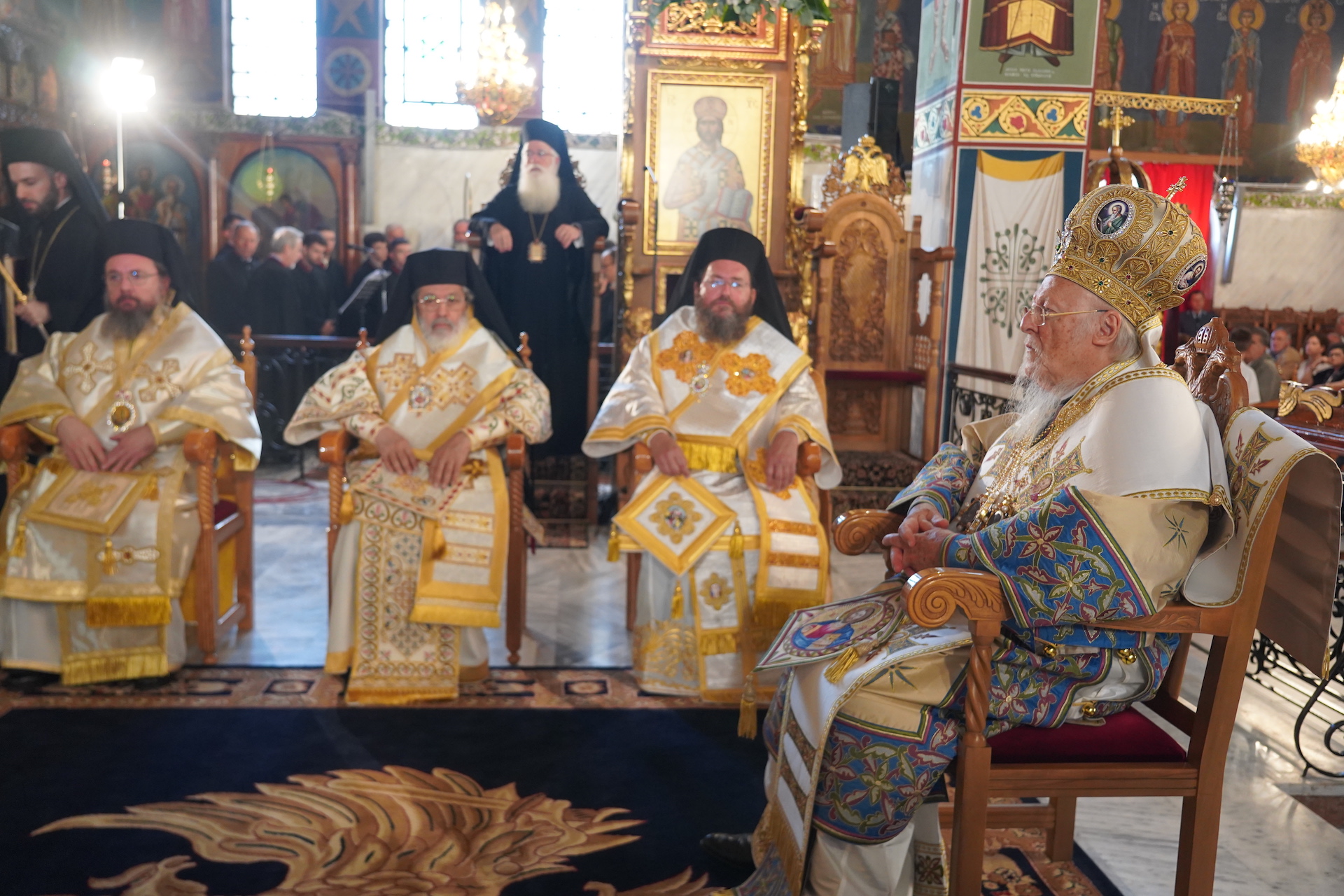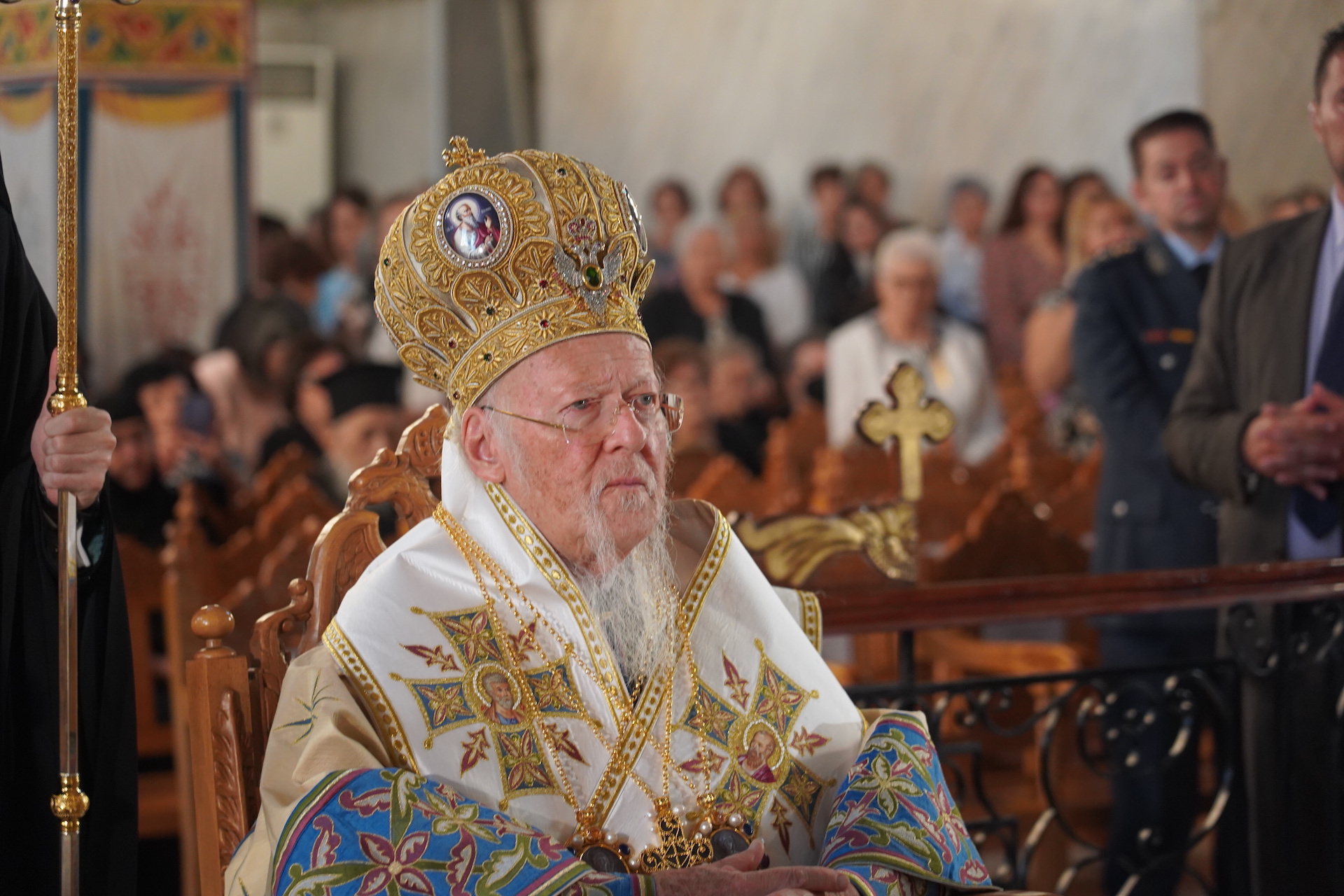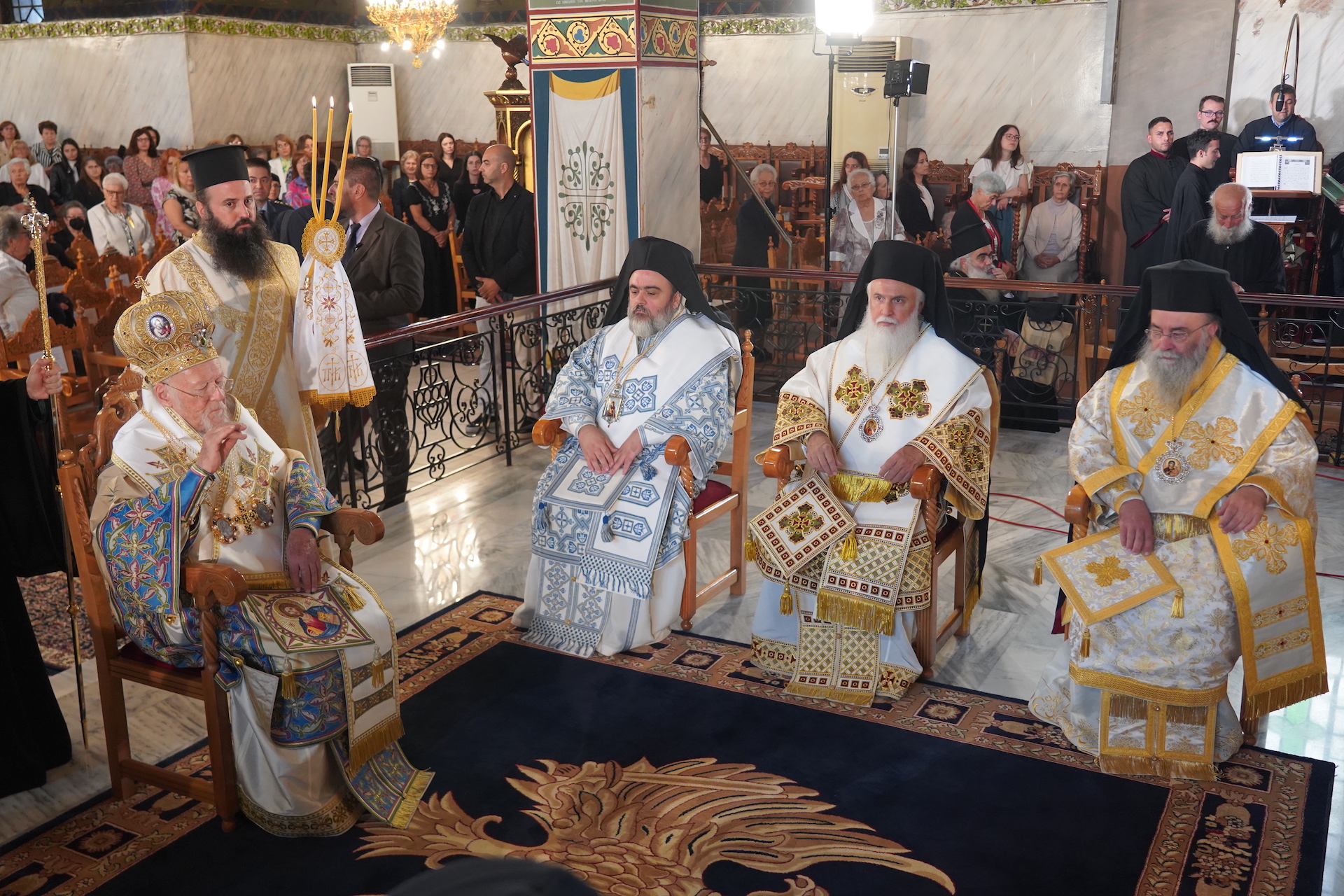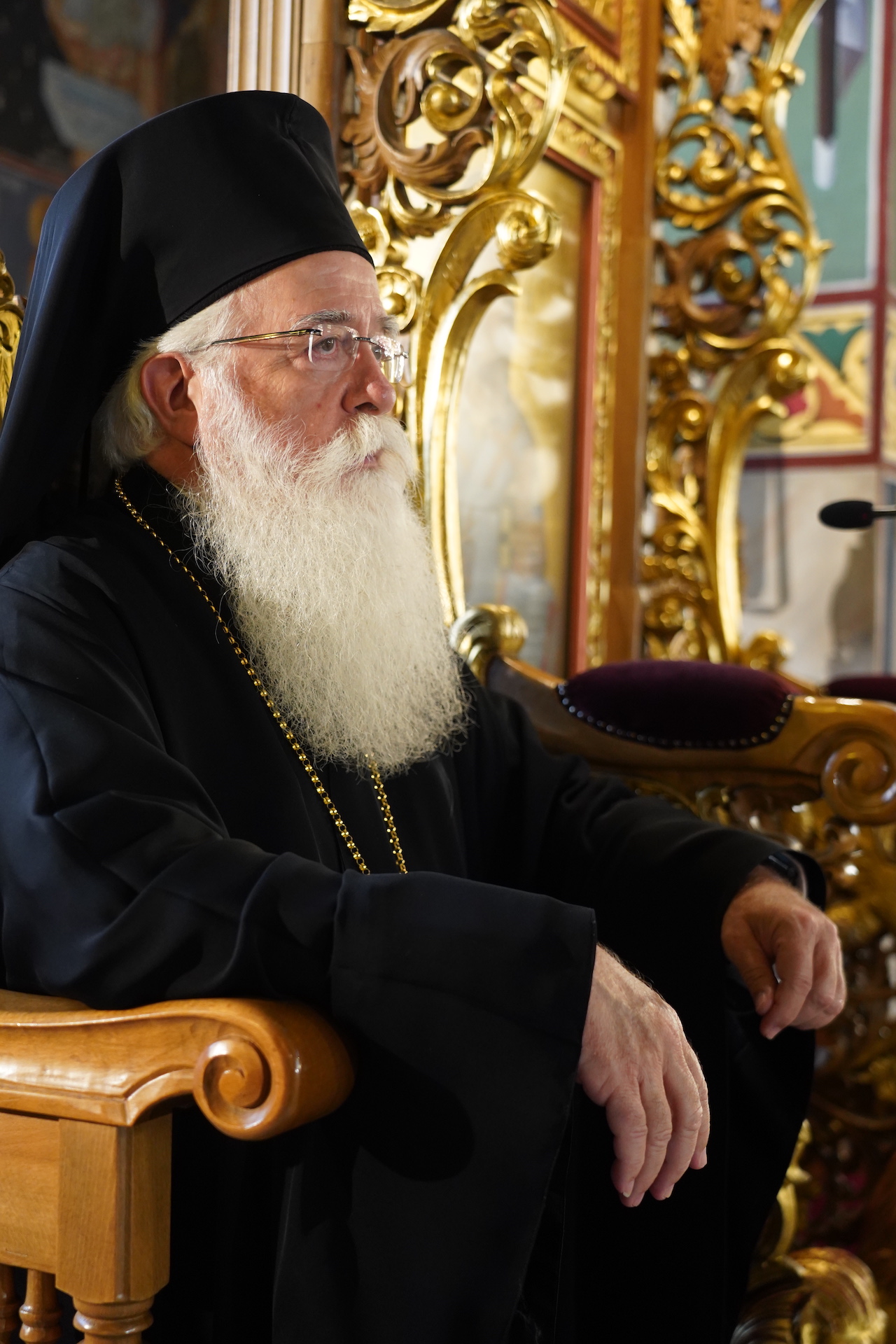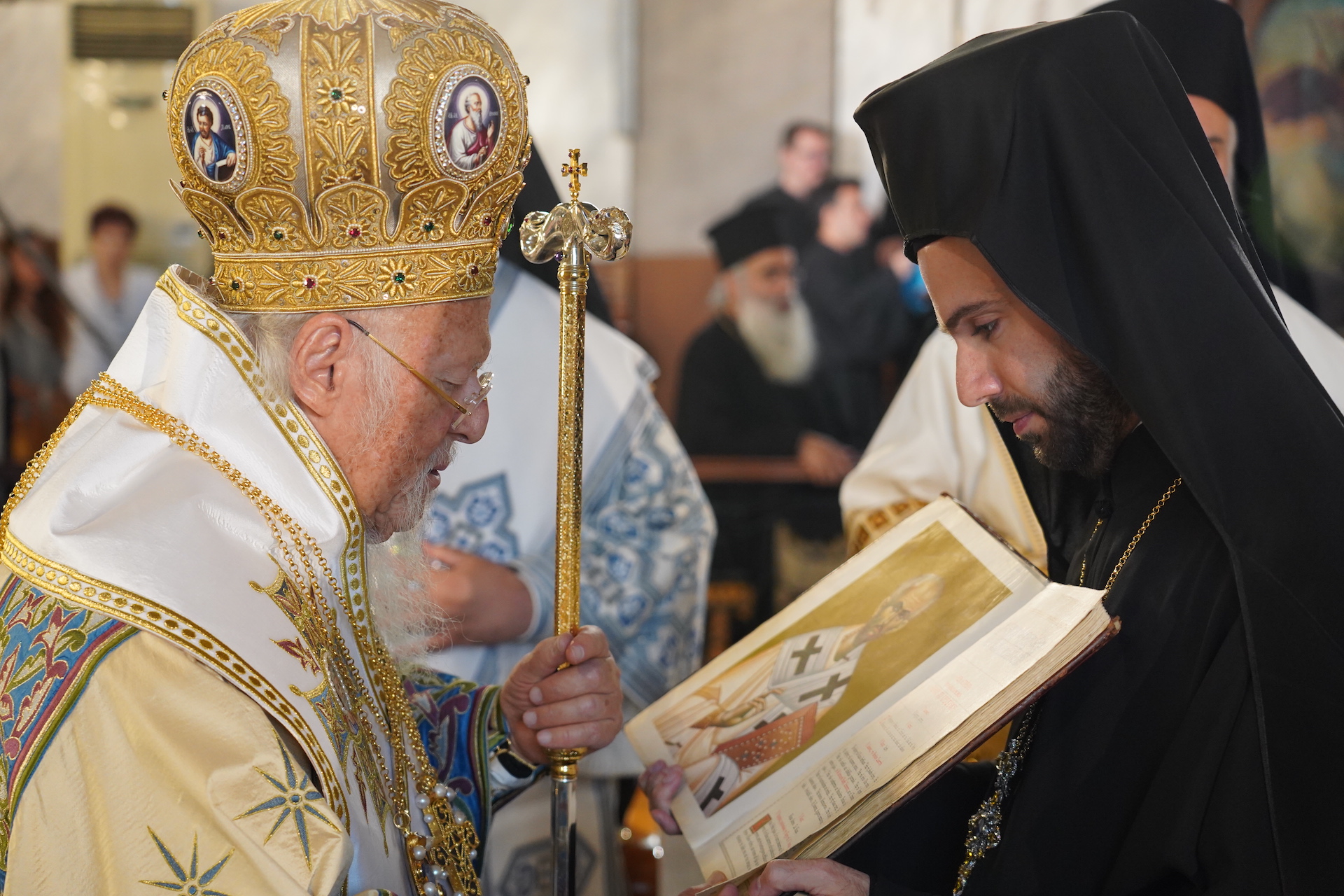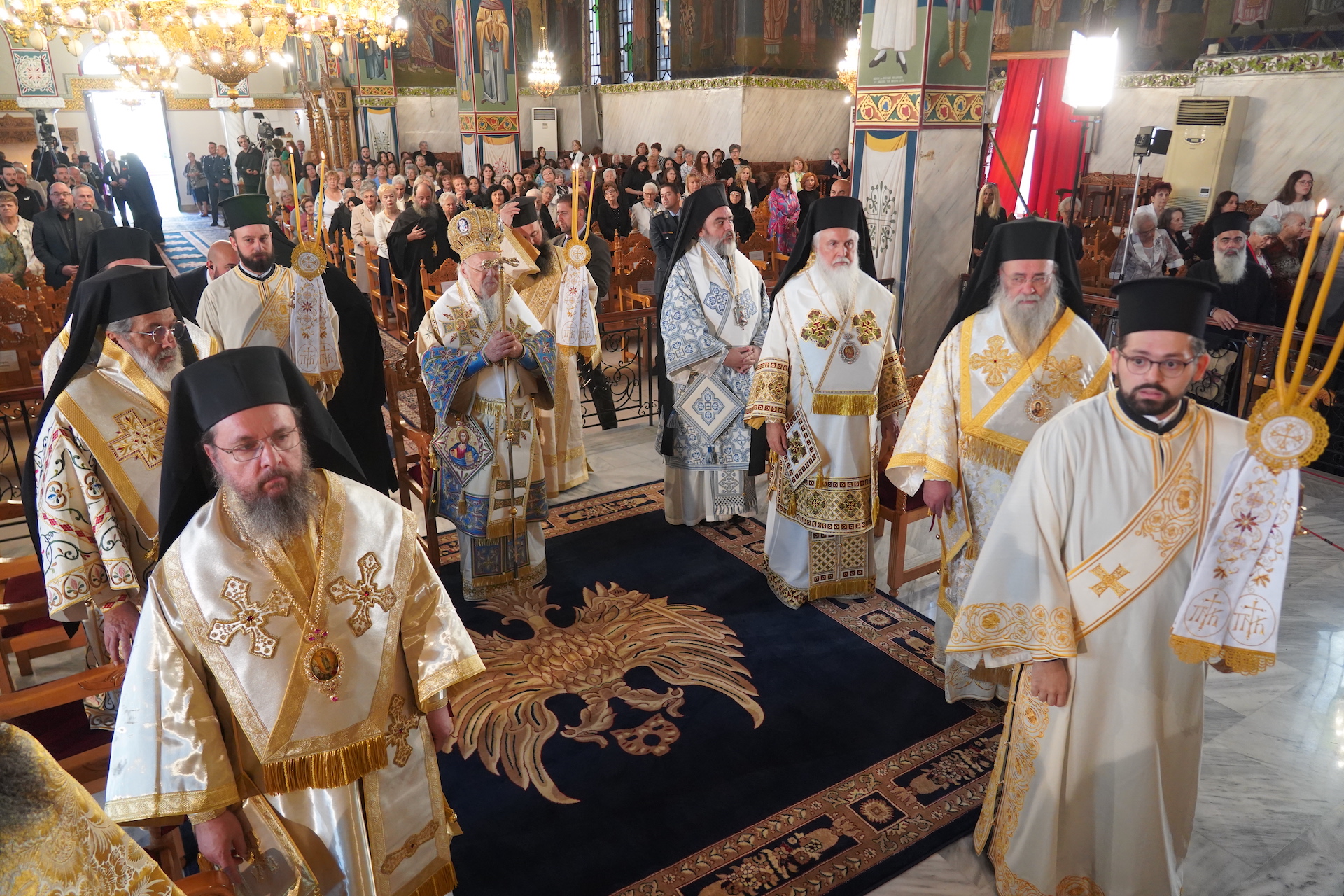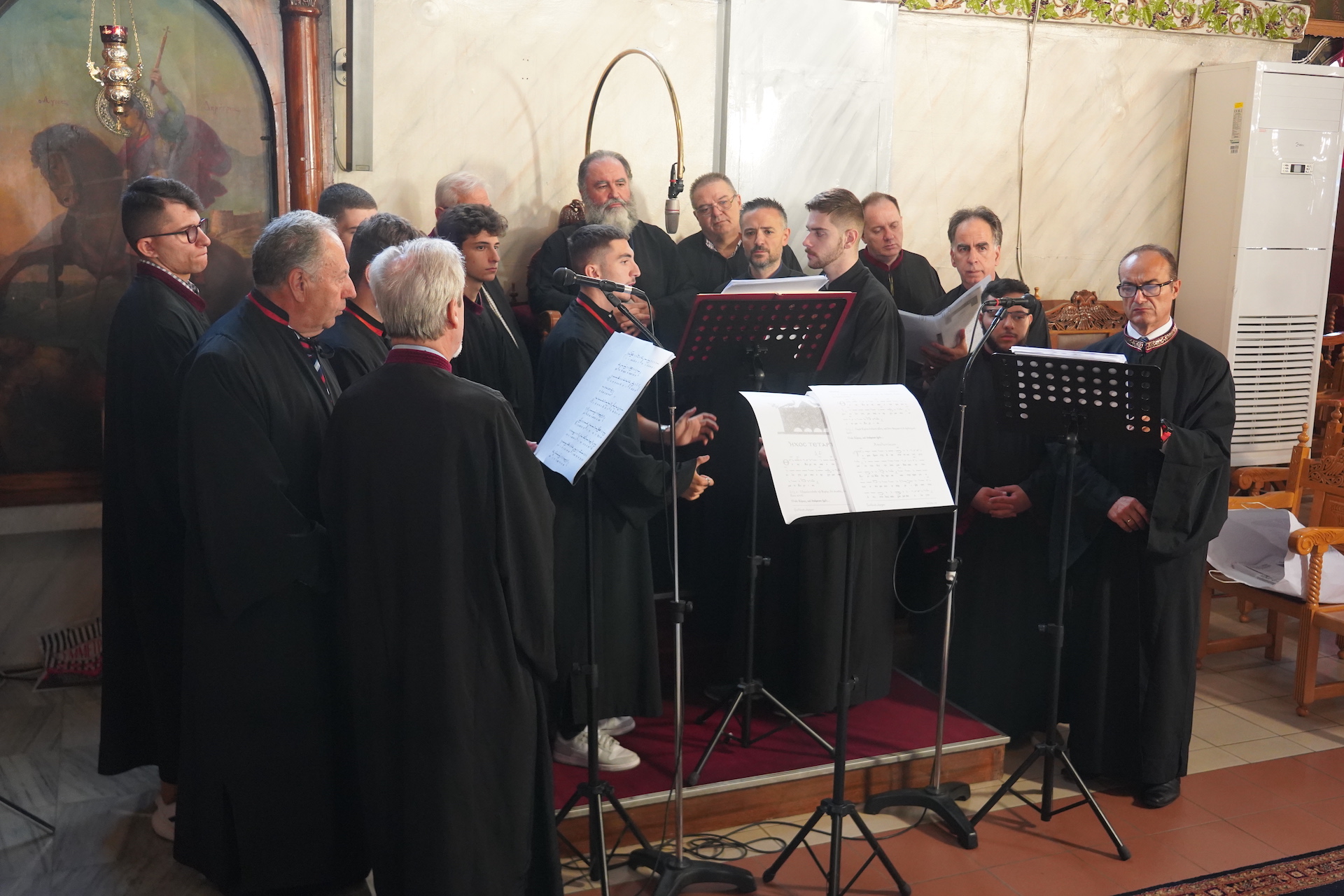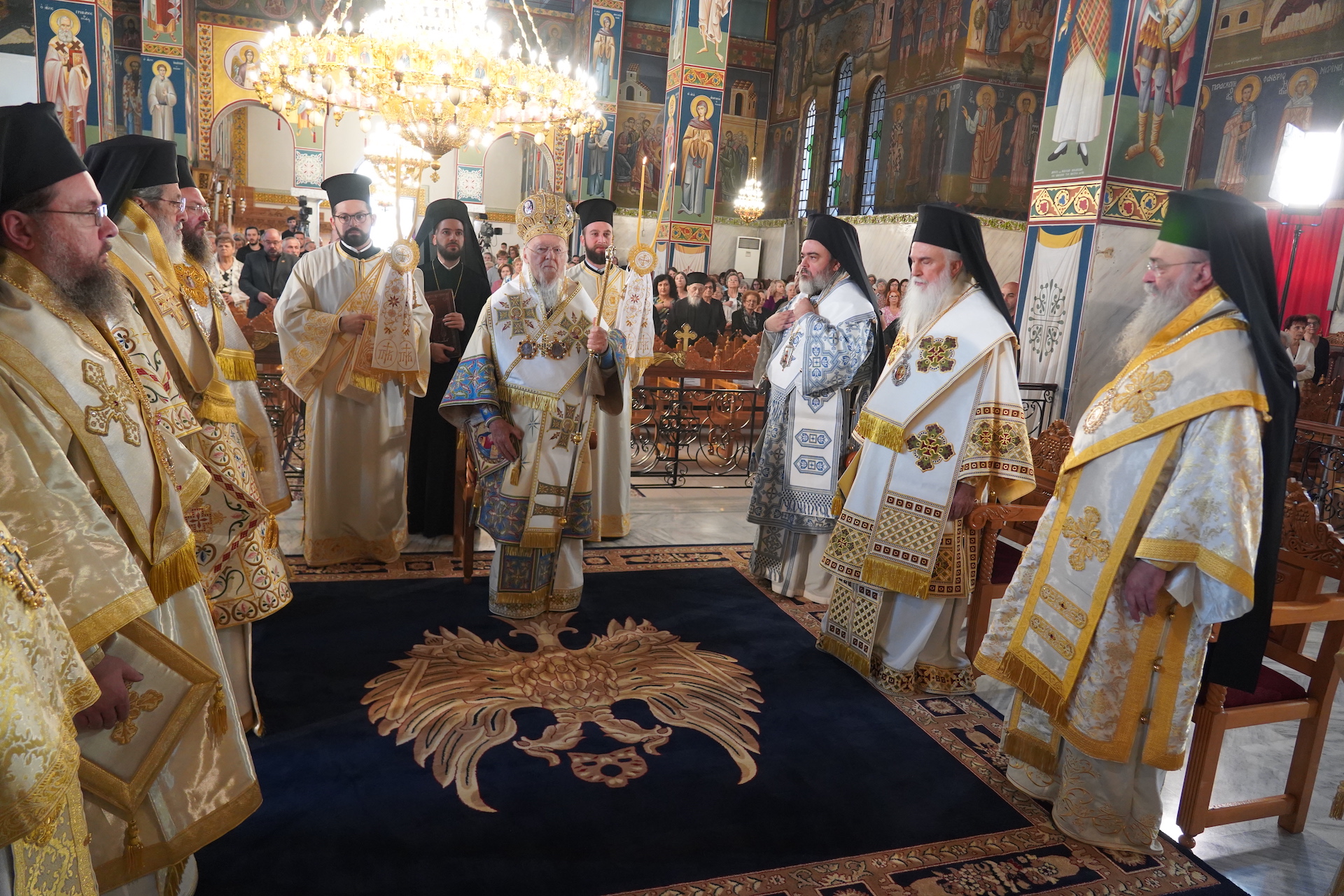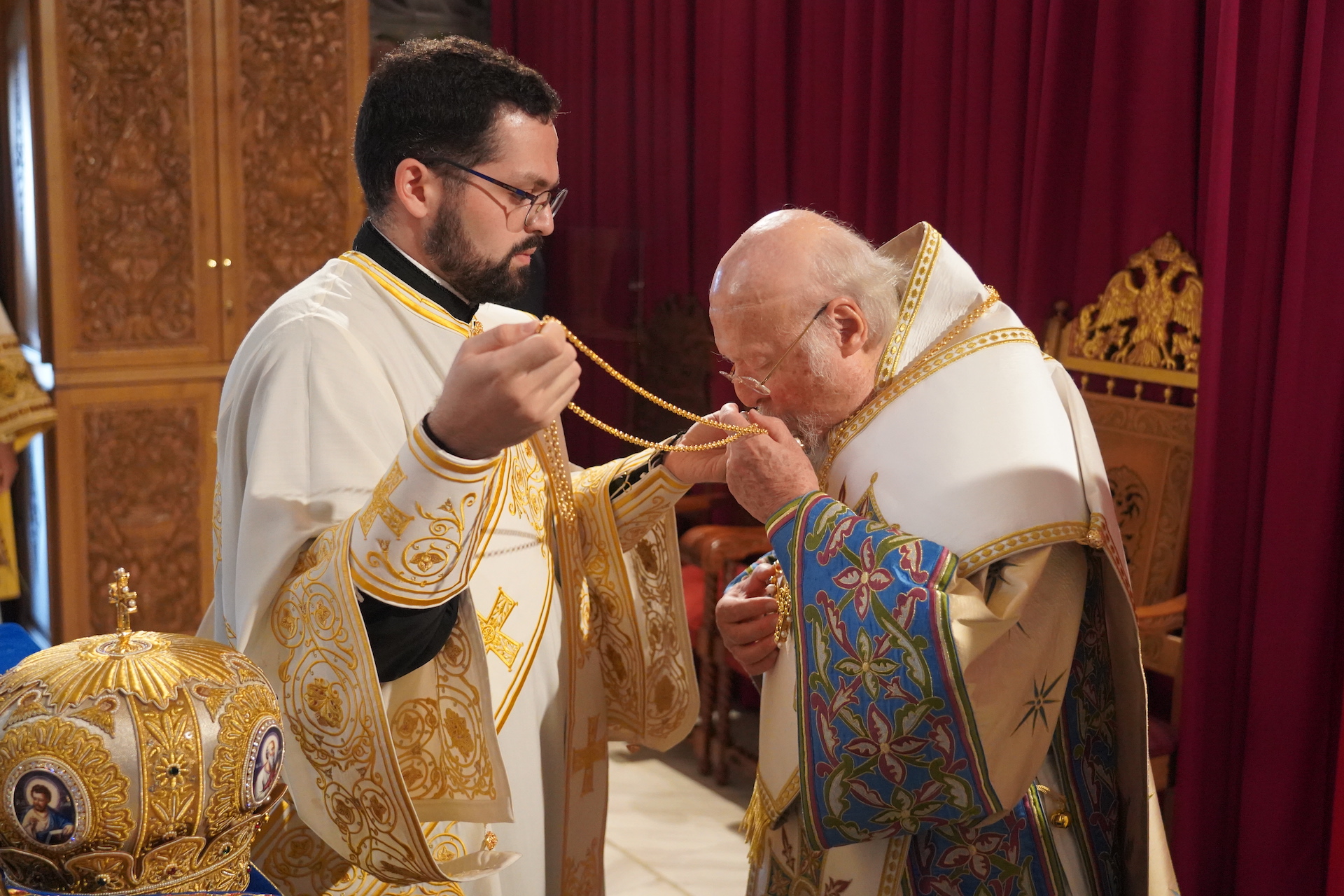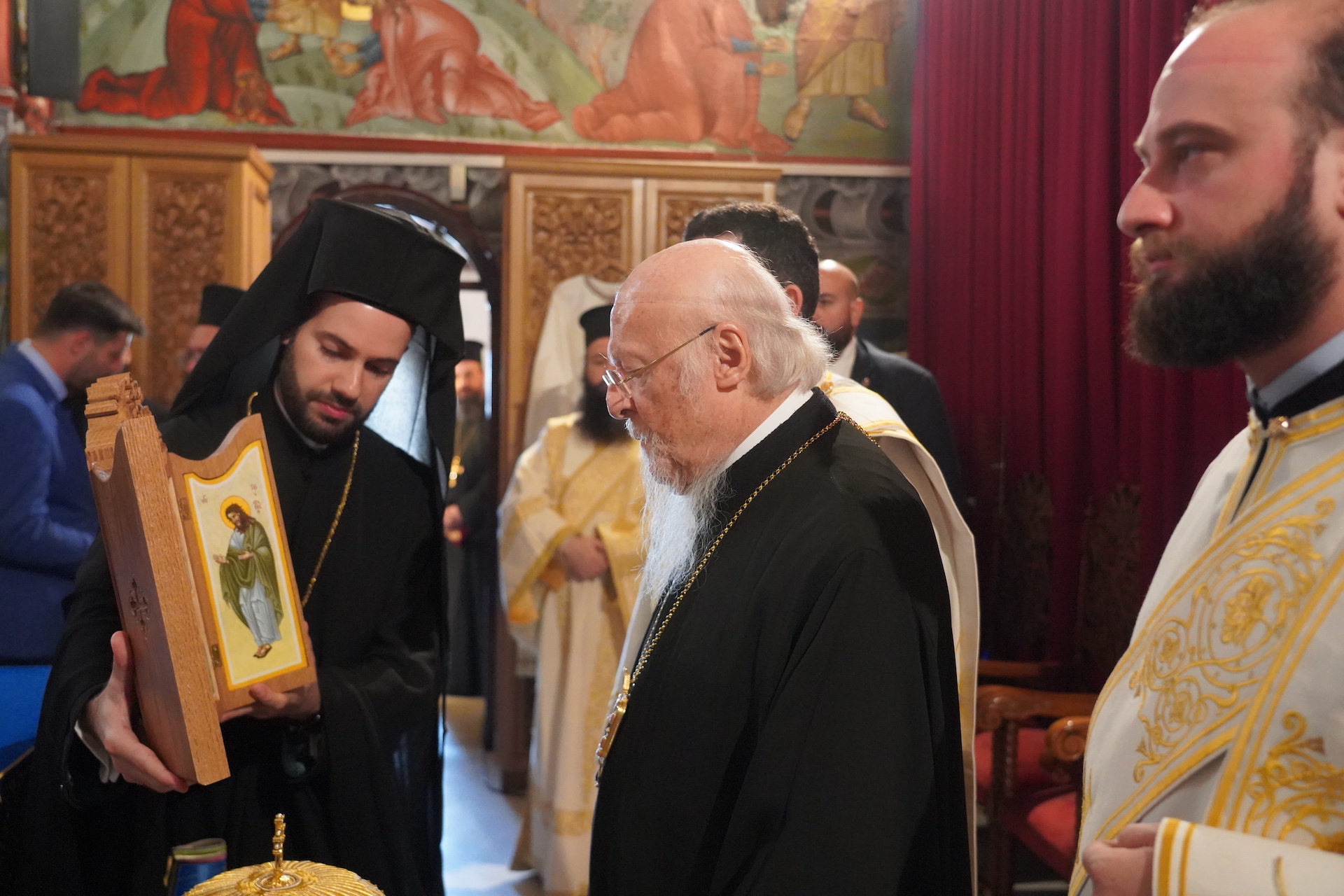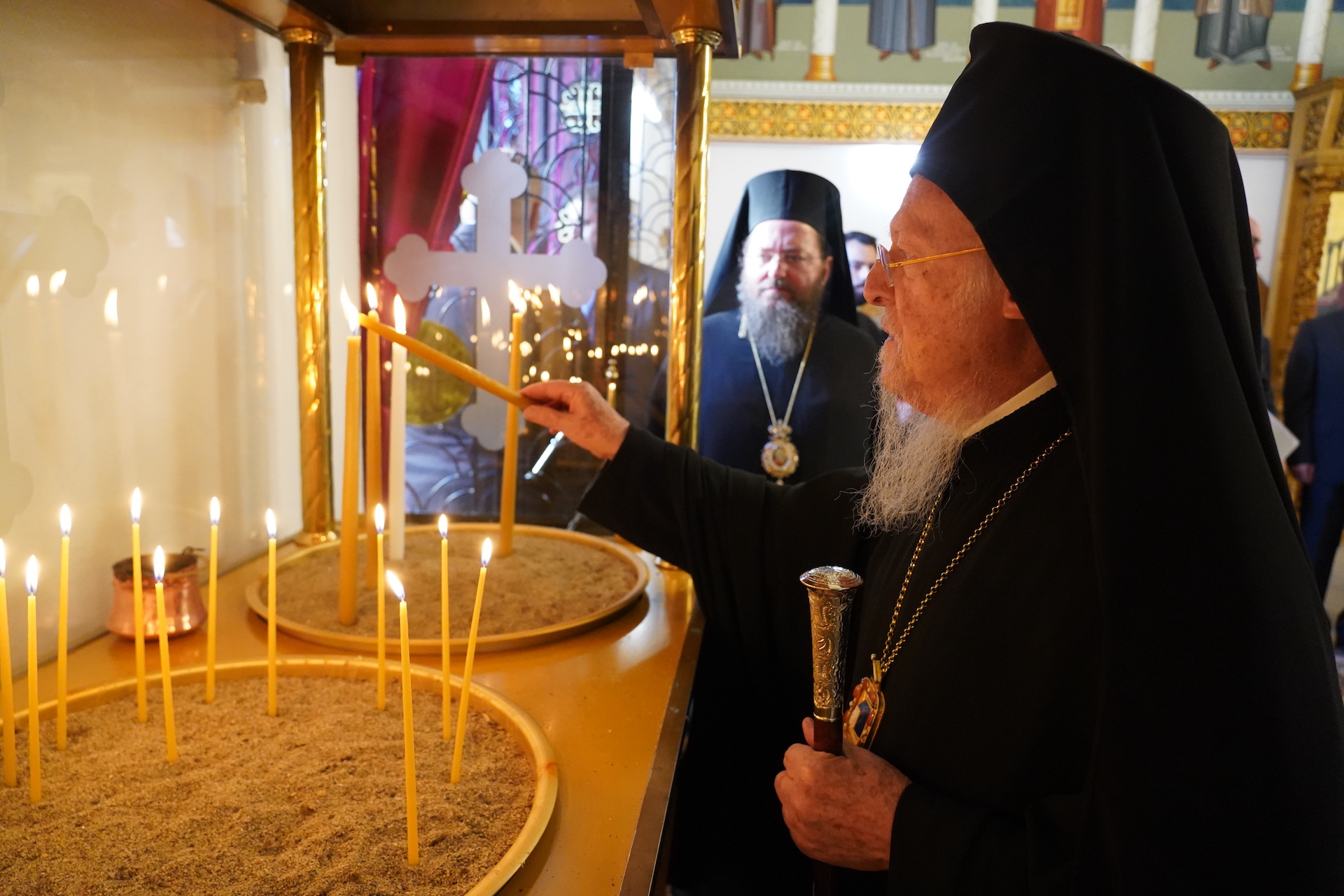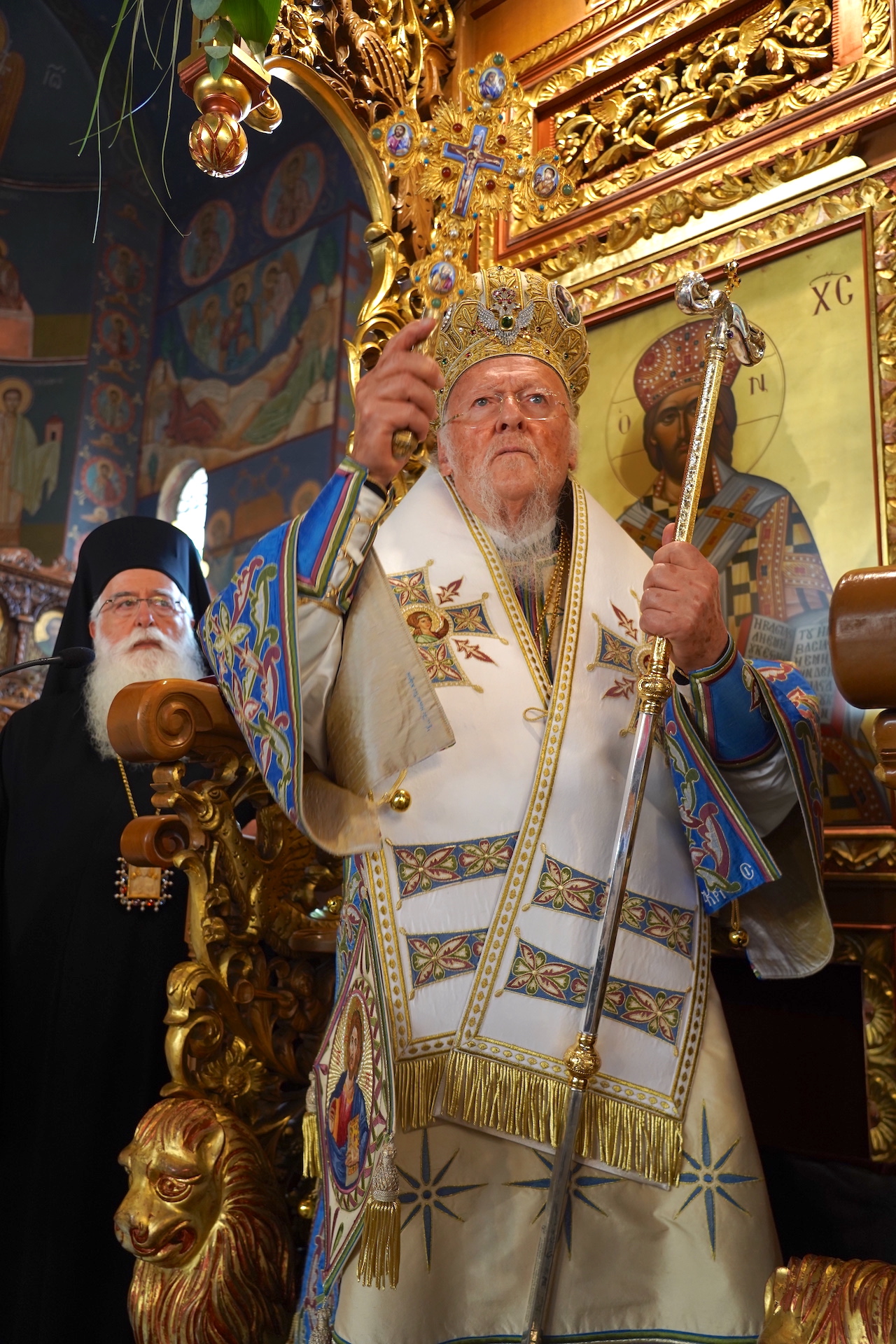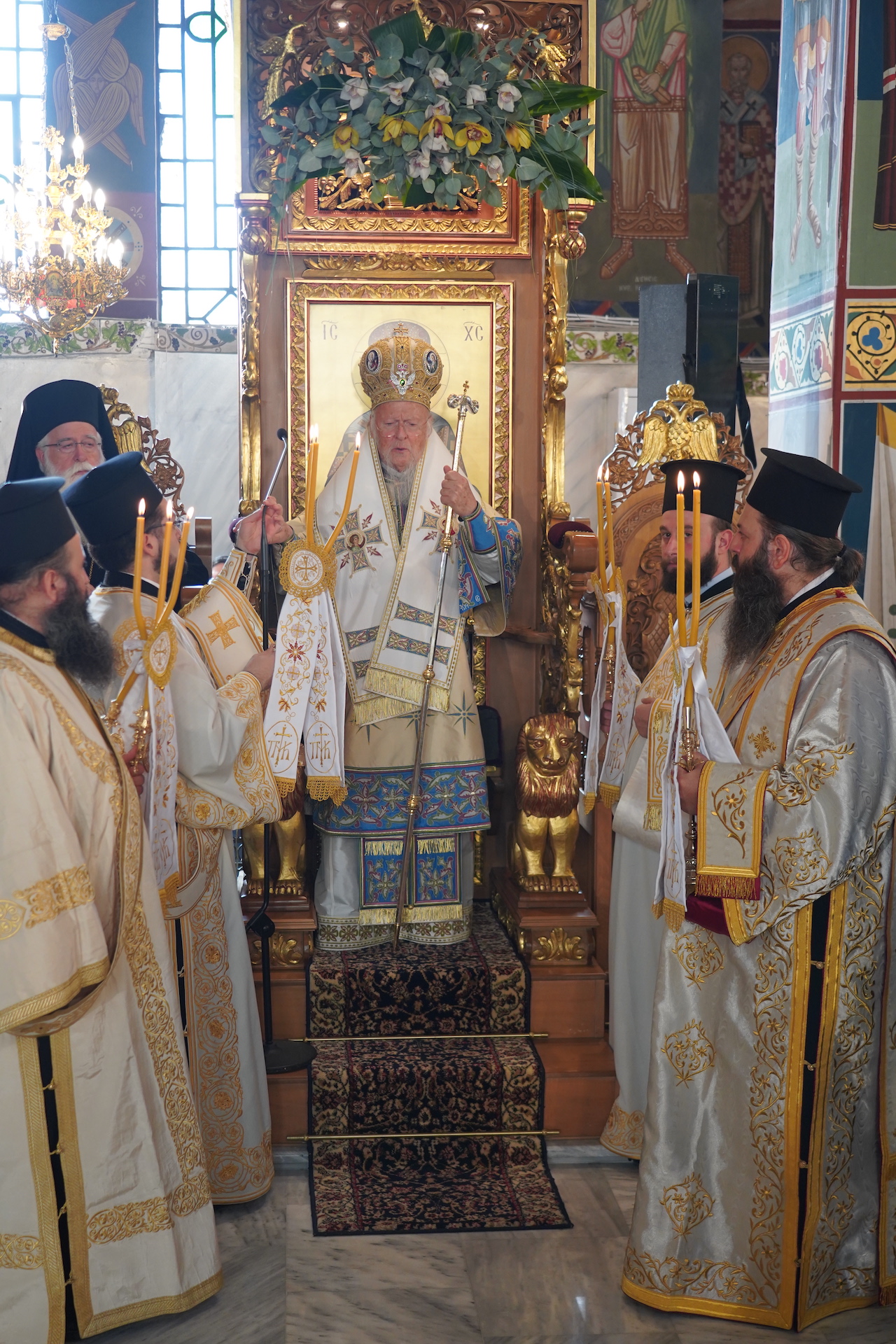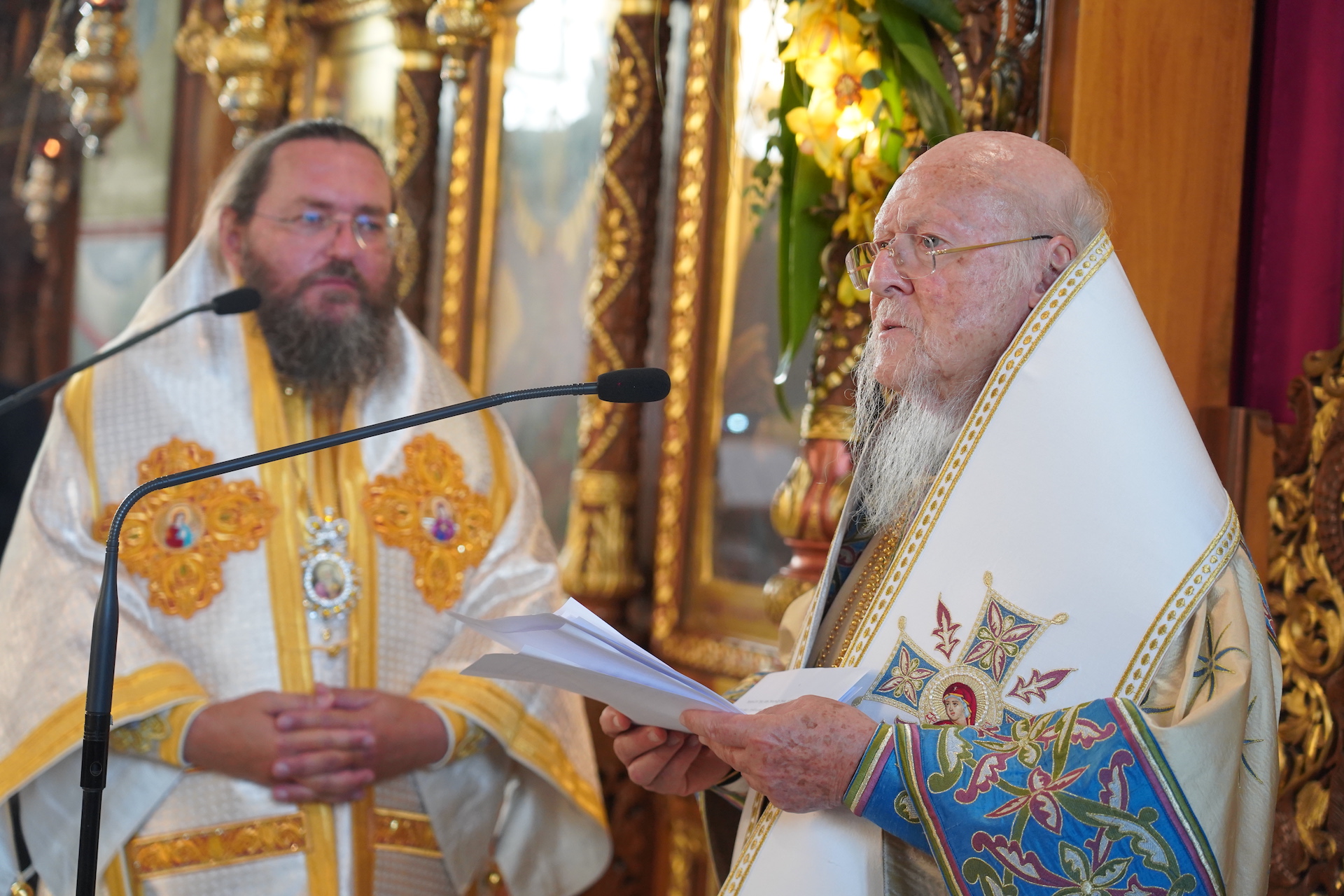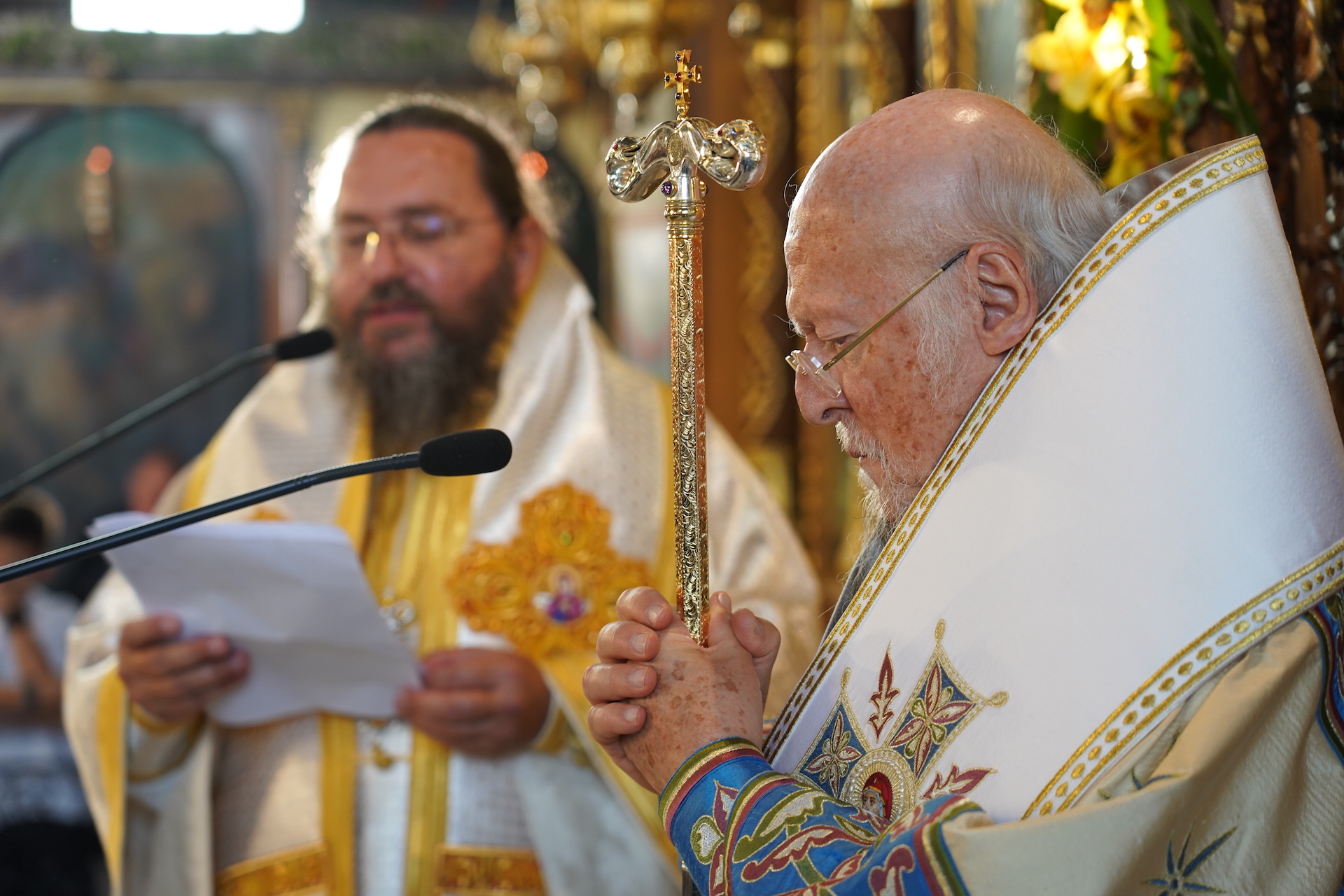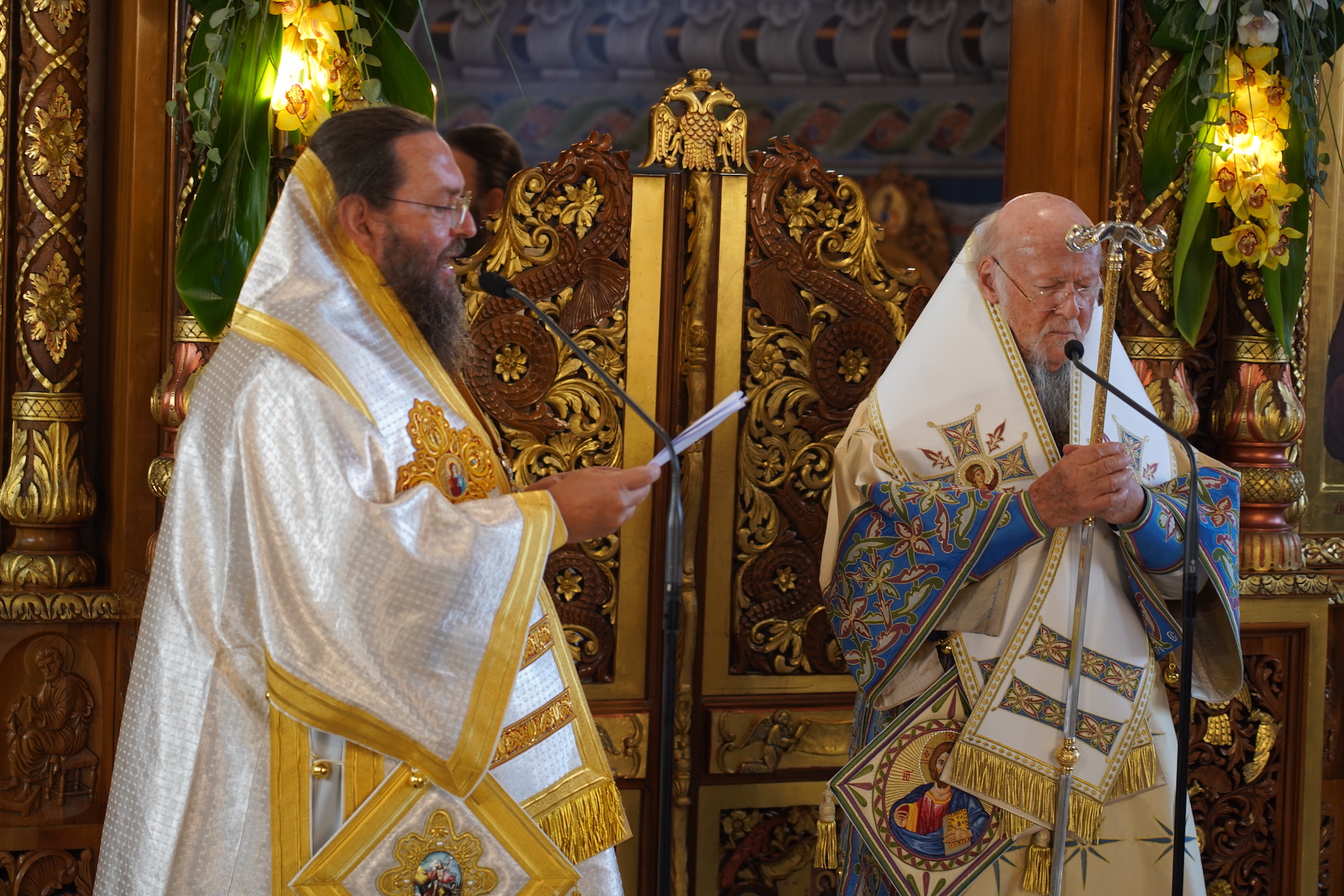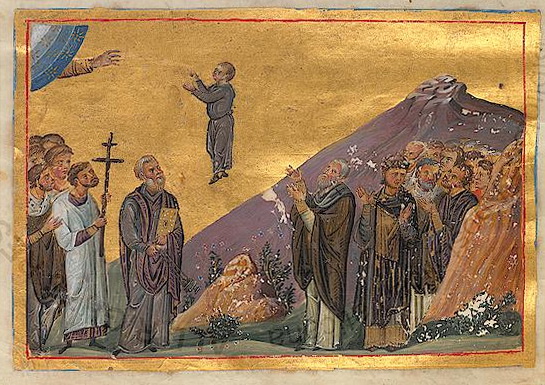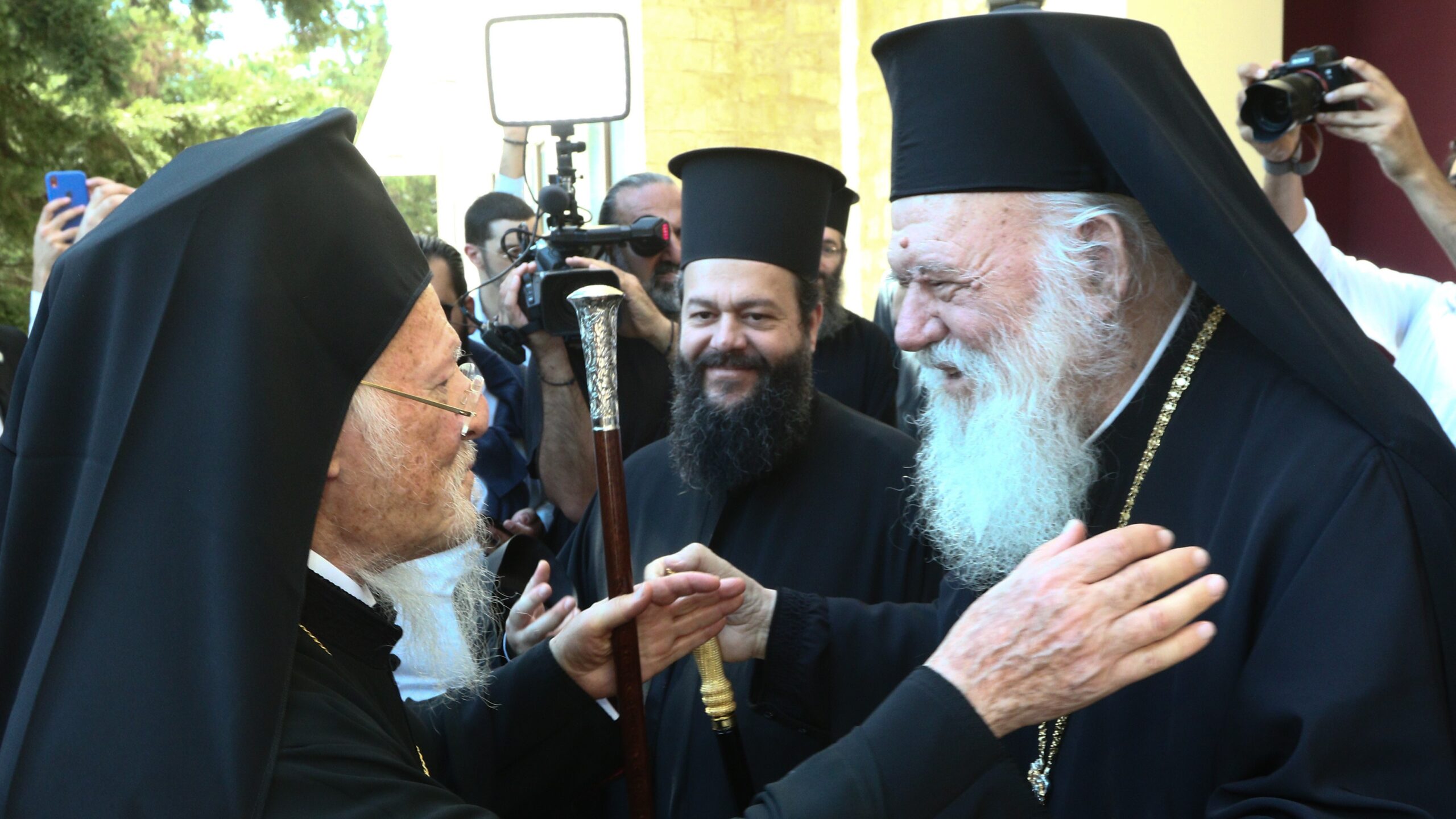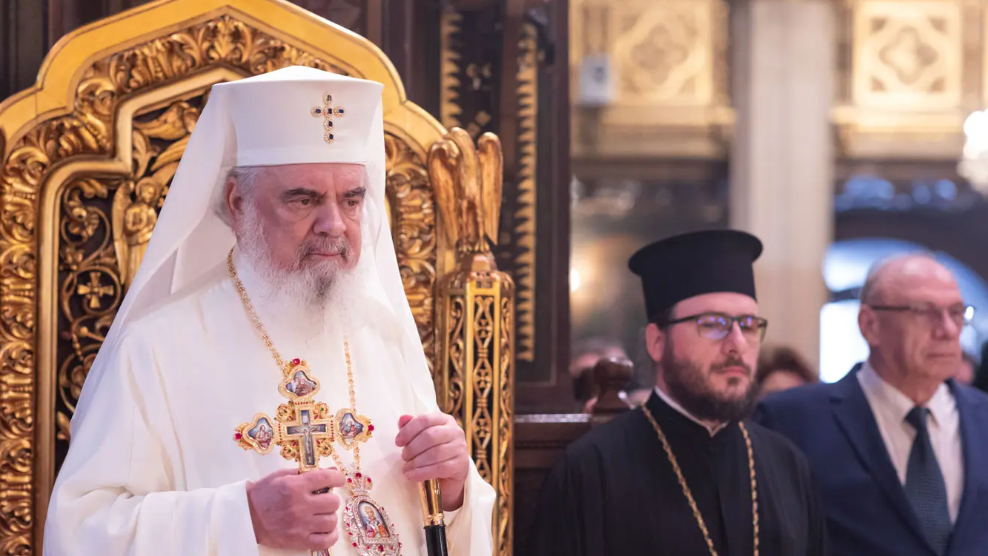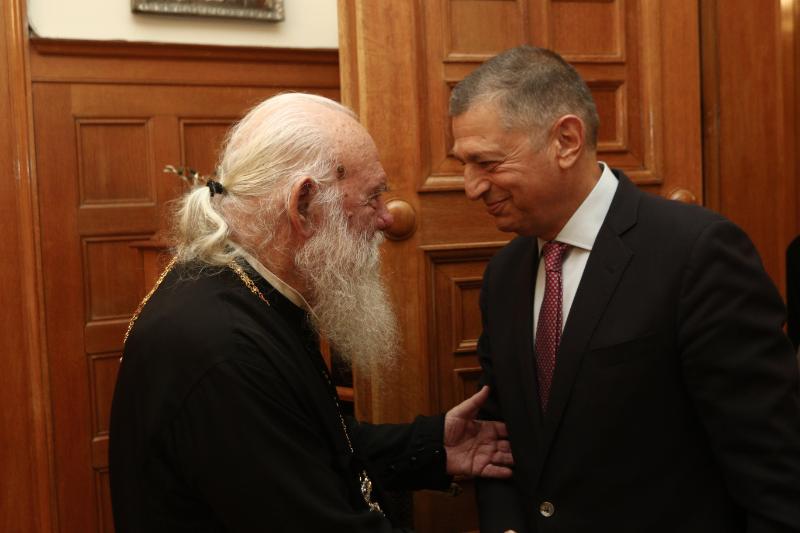Patriarchal Divine Liturgy at the Metropolitan Church of the Transfiguration of the Saviour, Kilkis
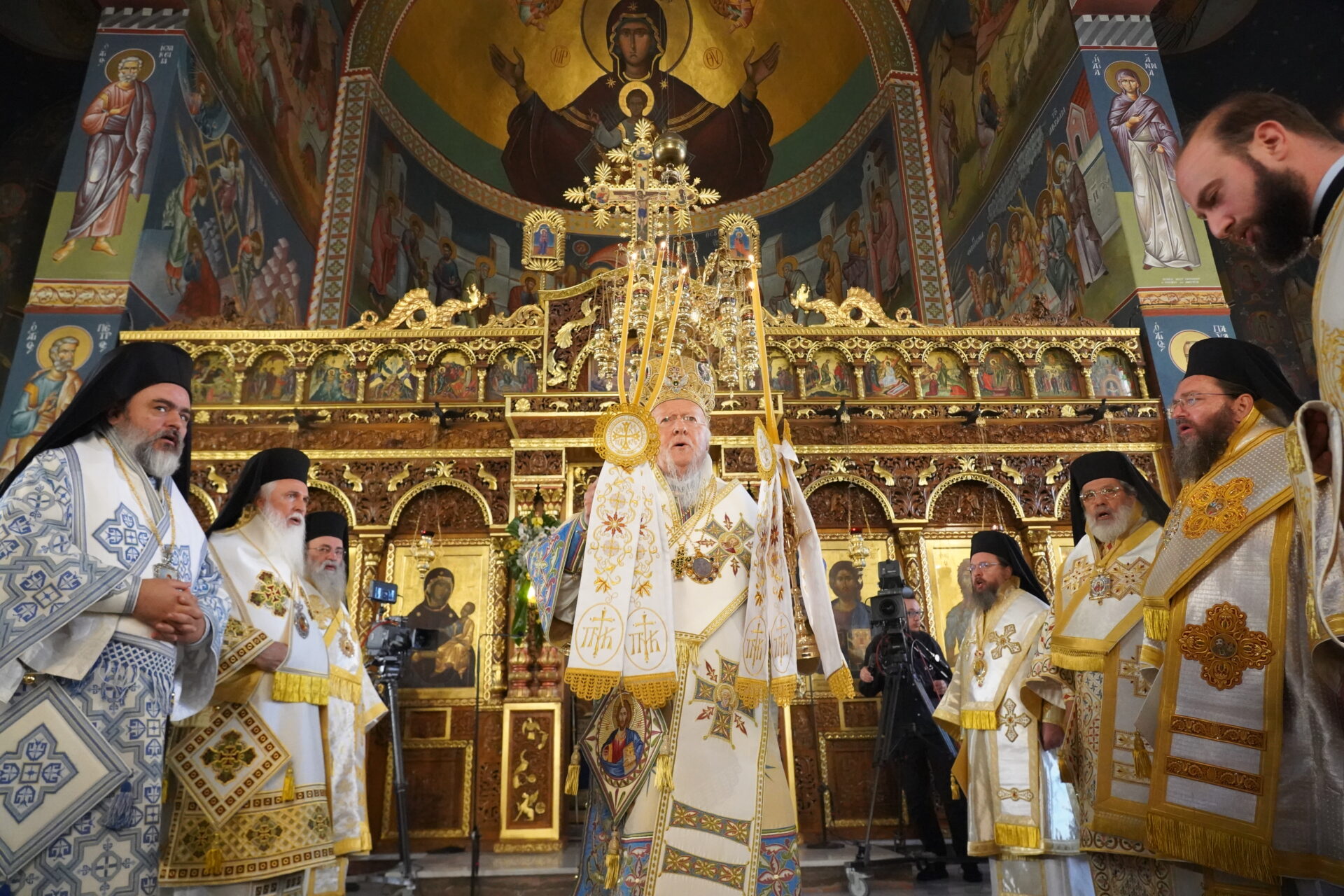

His All-Holiness Ecumenical Patriarch Bartholomew, who presided over yesterday’s Divine Liturgy at the Church of the Transfiguration of the Saviour in Kilkis, described the elevation of the Diocese of Polyana to the Metropolis of Polyana and Kilkis as a “milestone” for the local Church.
At the same time, Ecumenical Patriarch Bartholomew emphasised the historic role of the Ecumenical Patriarchate, which has always stood by the faithful during difficult times, while also highlighting its broader contribution to the Nation.
The Ecumenical Patriarch noted that the elevation of the Metropolis of Polyani and Kilkis is an “important event, deserving of a fitting celebration.” He expressed his gratitude for the gracious invitation extended to him and his entourage to come “to heroic Macedonia” and personally share in the “common joy.”
Ecumenical Patriarch Bartholomew emphasised the well-known historical trials of the region, which in the past claimed much “Christian blood” and also led to the loss of ecclesiastical territory. He recalled the struggles and great sacrifices made by the local population to remain faithful to Orthodoxy and the Mother Church, particularly “during the time when the propaganda of the Bulgarian schism, through armed force, unspeakable atrocities, and conspiracies, sought to ecclesiastically and ethnically claim Macedonia and its people.”
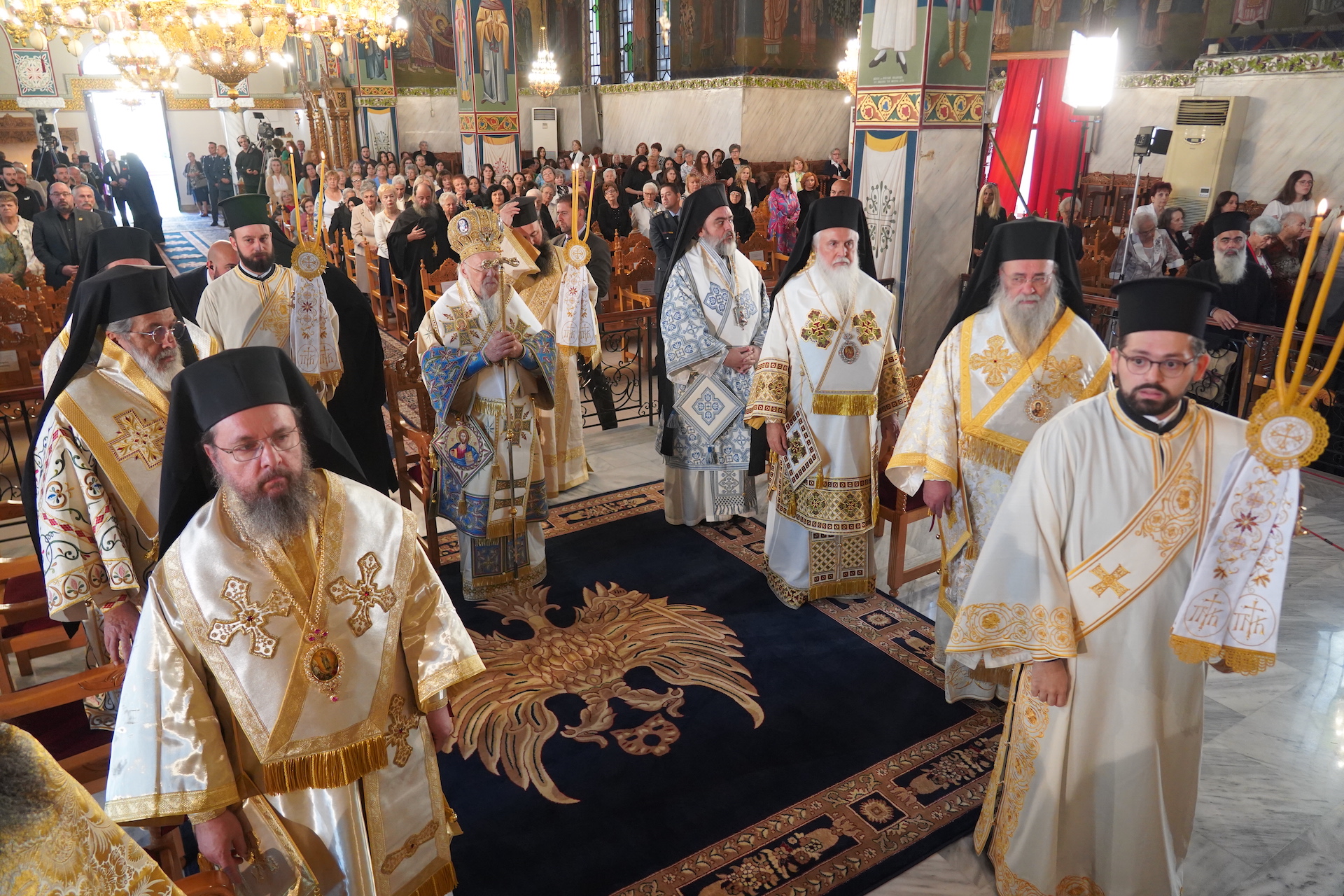

The Ecumenical Patriarch also spoke about the uprooting of the refugees from the Asia Minor Catastrophe and their arrival in Greece, where they preserved their customs and contributed significantly to the new lands where they settled.
“In Asia Minor, Eastern Roumelia, Thrace, Cappadocia, and Pontus, the devastation of our presence in 1922 brought a large number of our brothers as refugees, who, upon settling, made this Metropolis one of the most prominent refugee metropolises.
But the refugees did not only bring with them misery and sudden, absolute poverty; they also brought a great and invaluable wealth: the nobility of their origin, their dignity, their intelligence, their diligence, and their determination for a swift and honourable rebuilding and prosperity in their new homeland.
Above all, however, they brought with them their exemplary piety and devotion to the sacred traditions and saints of the Church and the Nation, their God-revering customs, the holy relics of the saints, and the venerable icons.”
The Ecumenical Patriarch also referred to the patriarchal and synodal act of September 4, 1928, through which the administration of the local metropolis, as well as the other metropolises of the New Lands, “was entrusted to the Most Holy Church of Greece, while retaining, over it and all the metropolises, the supreme canonical authority of the Ecumenical Patriarchate.” He further explained that “therefore, the most holy metropolitan, at all times, canonically commemorates the name of the Ecumenical Patriarch and is considered a member of the hierarchy of the Ecumenical Throne, as well as that of the Church of Greece,” adding:
“So, you are a sacred golden link that connects the Mother Church with the Most Holy Sister Church of Greece.”
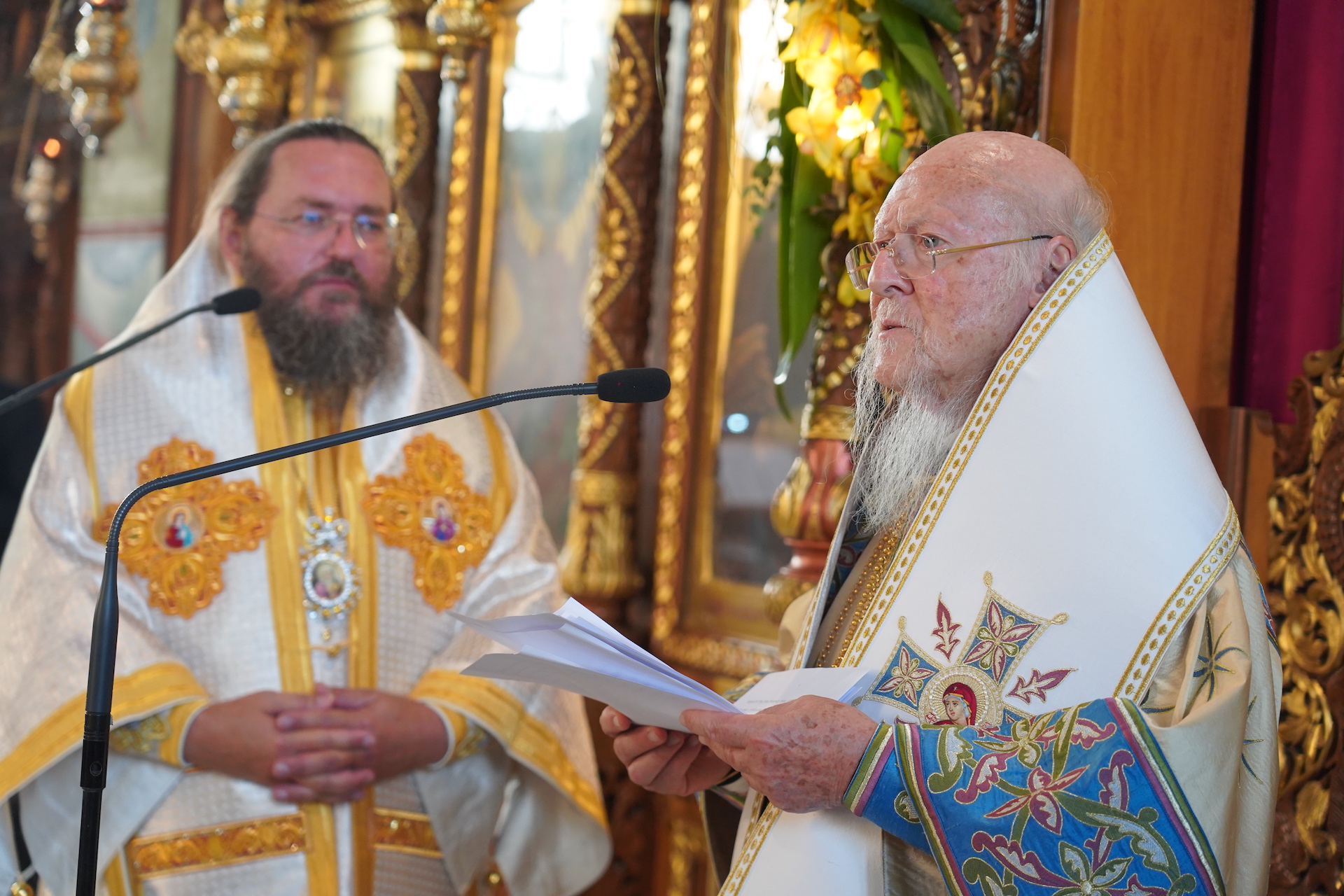

The Ecumenical Patriarch commended Metropolitan Bartholomew for his work, urged the faithful to visit and be spiritually renewed “in the font of Hellenism and the holy waters of the Bosphorus,” and added:
“We ask you to pray fervently for us, as we strive to hold our Thermopylae in the God-protected city of Constantine, the Queen of Orthodoxy. Your spiritual, social, professional, scientific, and overall progress and prosperity will always be a source of great joy and unity for us in the Lord.”
